#Bronze Statue of Apollo
Explore tagged Tumblr posts
Text
✨Exploring Palestine's Cultural Richness: From Ancient Statues to Modern Dreams✨
Palestine, a land steeped in history and brimming with cultural treasures, offers a fascinating blend of ancient artifacts and contemporary aspirations.Let's explor into the country's archaeological wonders, the enduring influence of Japan on Palestinian society, and the unique stories that bridge past and present, tradition and modernity.
Warning:My post is only Cultural,it highlights great cultural points.I took the care with sensitivity. I don't bring in politics,I won't meddle with.
A) The Bronze Statue of Apollo in Gaza:
Gaza, often in the headlines for its political tensions, holds a treasure from the ancient world that speaks to its rich cultural heritage. The discovery of a Bronze Statue of Apollo, dating back to antiquity, sheds light on Gaza's historical significance as a crossroads of civilizations. This remarkable artifact serves as a reminder of Gaza's role in the ancient world and the cultural exchanges that occurred in the region. However, the current whereabouts of this statue are unknown, leaving its fate uncertain amid the region's instability.
The Story:
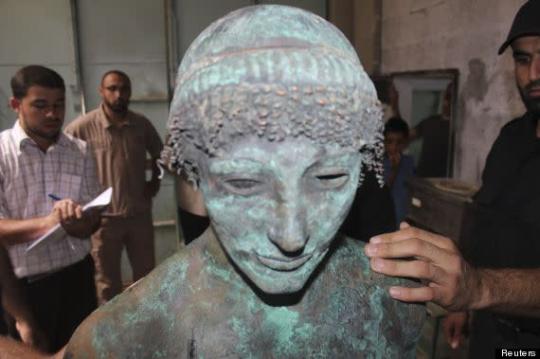
Lost for centuries, a rare bronze statue of the Greek god Apollo has mysteriously resurfaced in the Gaza Strip, only to be seized by police and vanish almost immediately from view.
Word of the remarkable find has caught the imagination of the world of archaeology, but the police cannot say when the life-sized bronze might re-emerge or where it might be put on display.
A local fisherman says he scooped the 500kg (1,100lb) god from the seabed last August, and carried it home on a donkey cart, unaware of the significance of his catch.
Others soon guessed at its importance, and the statue briefly appeared on eBay with a $500,000 (£300,000) price tag - well below its true value. Police from the Islamist group Hamas, which rules the isolated Palestinian territory, swiftly seized it and say they are investigating the affair.
Archaeologists have not been able to get their hands on the Apollo - to their great frustration- and instead must pore over a few blurred photographs of the intact deity, who is laid out incongruously on a blanket emblazoned with Smurfs.
From what they can tell, it was cast sometime between the 5th and the 1st century BC, making it at least 2,000 years old.
"It's unique. In some ways I would say it is priceless. It's like people asking what is the [value] of the painting La Gioconda [the Mona Lisa] in the Louvre museum," said Jean-Michel de Tarragon, a historian with the French Biblical and Archaeological School of Jerusalem.
"It's very, very rare to find a statue which is not in marble or in stone, but in metal," he told Reuters television.
The apparently pristine condition of the god suggested it was uncovered on land and not in the sea, he said, speculating that the true location of where it was unearthed was not revealed to avoid arguments over ownership.
"This wasn't found on the seashore or in the sea ... it is very clean. No, it was [found] inland and dry," he said, adding that there were no signs of metal disfigurement or barnacles that one normally sees on items plucked from water.
Palestinian fisherman Joudat Ghrab tells a different tale. The 26-year-old father of two said he saw a human-like shape,lying in shallow waters some 100 metres offshore, just north of the Egyptian-Gaza border.
At first he thought it was a badly burnt body, but when he dived down to take a closer look he realised it was a statue. He says it took him and his relatives four hours to drag the treasure ashore.
"I felt it was something gifted to me by God," Ghrab told Reuters. "My financial situation is very difficult and I am waiting for my reward."
His mother was less happy when she saw the naked Apollo carried into the house, demanding that his private parts be covered. "My mother said: 'What a disaster you have brought with you' as she looked at the huge statue," said Ghrab.
The discoloured green-brown figure shows the youthful, athletic god standing upright on two, muscular legs; he has one arm outstretched, with the palm of his hand held up.
He has compact, curly hair, and gazes out seriously at the world, one of his eyes apparently inlaid with a blue stone iris, the other just a vacant black slit.
Ghrab says he cut off one of the fingers to take to a metals expert, thinking it might have been made of gold. Unbeknownst to him, one of his brothers severed another finger for his own checks. This was melted down by a jeweller.
Family members belonging[ I doubt if his family ever had ties to Hamas,either directly either indirectly ] to a Hamas militia soon took charge of the statue, and at some stage the Apollo appeared on eBay, with the seller telling the buyer to come and collect the item from Gaza.
That would have been easier said than done, however, as Gaza is virtually sealed off from the outside world, with both Israel and Egypt imposing rigid controls on access to the impoverished enclave and its 1.8 million inhabitants.
Whether any potential buyers stepped forward is not clear, but when Hamas's civilian authorities found out about the artefact, they ordered the police to seize it.
Officials at Gaza's tourism ministry told Reuters the statue would not be shown to the public until a criminal investigation into who tried to sell it was completed.
However, Ahmed al-Bursh, the ministry's director of archaeology, said he had seen it and promised that Ghrab would receive a reward once the issue had been resolved.
"It is a precious treasure, an important archaeological discovery," said Bursh. Once the statue has been released by police, his ministry plans to repair it and put it on show in Gaza.
"International institutions have also contacted us and have offered to help with the repair process," he said, adding that a museum in Geneva and the Louvre in Paris wanted to take it on loan.
Like Ghrab, Bursh said the statue had been found at sea. The historian Tarragon said it was vital to know the true location of its discovery.
Some 5,000 years of history lie beneath the sands of the Gaza Strip, which was ruled at various times by ancient Egyptians, Philistines, Romans, Byzantines and crusaders.
Alexander the Great besieged the city and the Roman emperor Hadrian visited. However, local archaeologists have little experience to carry out any scientific digs and many sites remain buried.
Statues such as the Apollo cast would not have been held in isolation, meaning it may prove the tip of an historical iceberg, according to Tarragon.
"A statue at that time was [put] in a complex, in a temple or a palace. If it was in a temple, you should have all the other artefacts of the cult [at the site]," he said, adding that he hoped Hamas appreciated its potential importance.
"There is a feeling that they could find more and more [items] linked to the statue, more and more artefacts, so this is very sensitive," he said.
Source: https://www.reuters.com/article/us-palestinian-apollo-gaza-idUSBREA190NQ20140210/
https://www.aljazeera.com/features/2014/4/8/what-happened-to-gazas-apollo-statue
B) An 11-Year-Old Palestinian Boy Pursues His Dream of Becoming a Chef:
In the midst of adversity, stories of hope and aspiration emerge, exemplified by the journey of an 11-year-old Palestinian boy who dreams of becoming a chef. Despite the challenges he faces, including limited resources and economic hardship, his passion for cooking fuels his ambition.
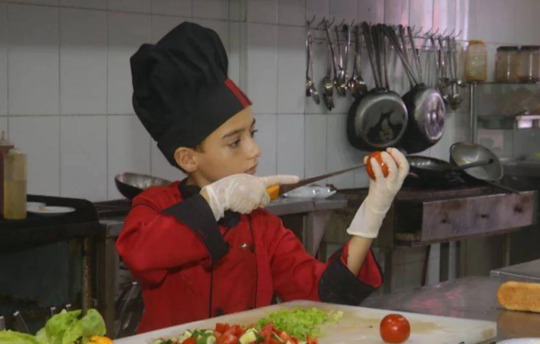
His story underscores the resilience and determination of the Palestinian people to pursue their dreams and overcome obstacles in pursuit of a brighter future.
Palestinian child Mahmoud Abu Nada cooks inside the kitchen of a local restaurant, in Gaza City on Oct. 13, 2018. Although blood cancer has forced him to leave school, 11-year-old Palestinian boy Mahmoud Abu Nada became a chef after receiving courses at a Gaza restaurant. TO GO WITH Feature: Gaza child suffering from cancer amazes people with cooking talent.
Source: http://www.xinhuanet.com/english/2018-10/16/c_137536471.htm
C) Palestinian-Japanese Cooperation For the restoration the mosaics of Hisham's Palace:
Hisham's Palace (Arabic: قصر هشام Qaṣr Hishām), also known as Khirbat al-Mafjar (Arabic: خربة المفجر), is an Vital early Islamic archaeological site in the Palestinian city of Jericho, in the West Bank. Built by the Umayyad dynasty in the first half of the 8th century, it is one of the so-called Umayyad desert castles. It is located 3 km north of Jericho's city center.In 2015, an agreement was signed between the Palestinian Ministry of Tourism and Antiquities and the Japan International Cooperation Agency to enable the 825 square metres (8,880 sq ft) mosaic in the palace, one of the largest in the world, to be uncovered and readied for display.
On 2018 the collaboration between Palestinians and Japanese archaeologists has yielded remarkable results, including the recent display of the site.
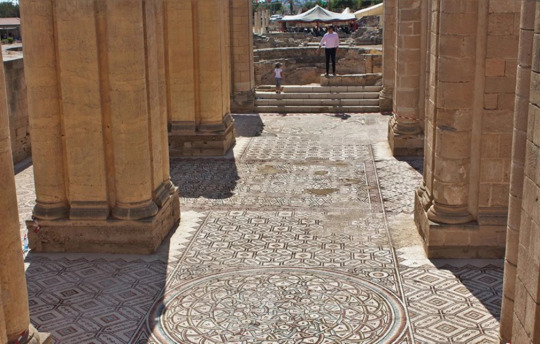
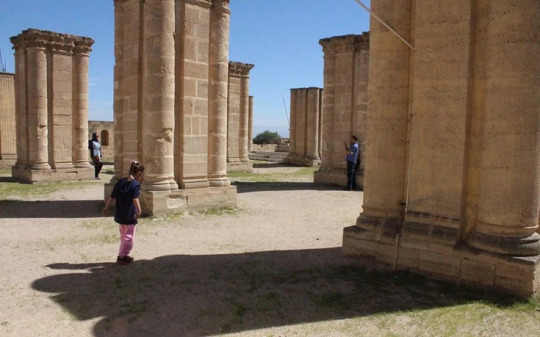
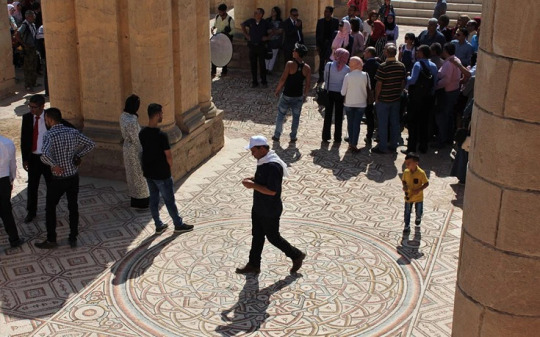
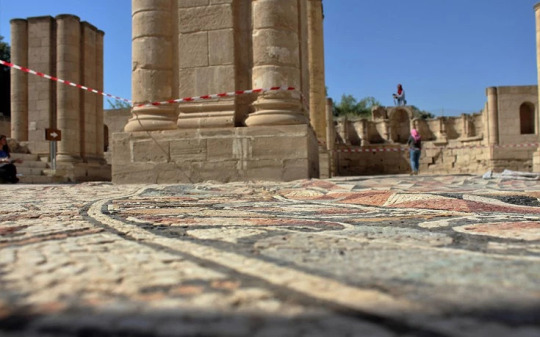
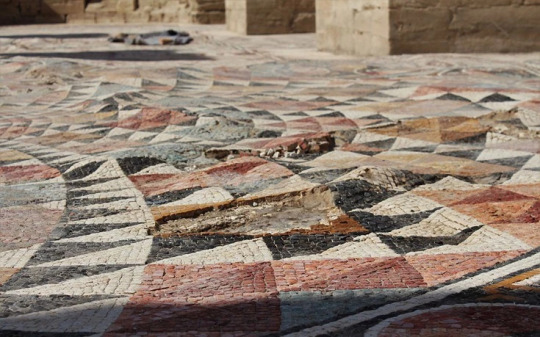
This joint effort not only highlights the importance of international cooperation in preserving cultural heritage,but also deepens the cultural ties between Palestine and Japan.
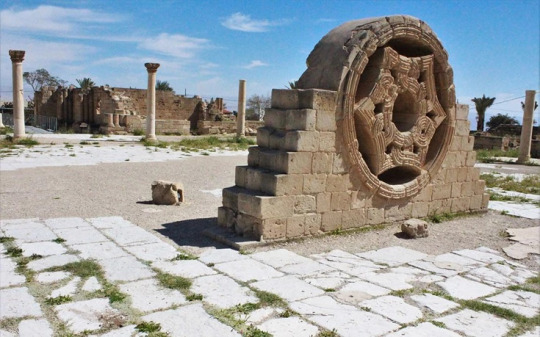
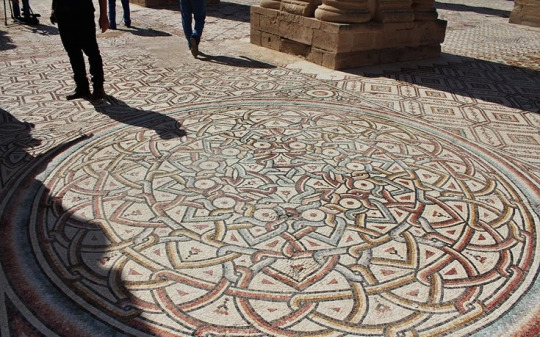
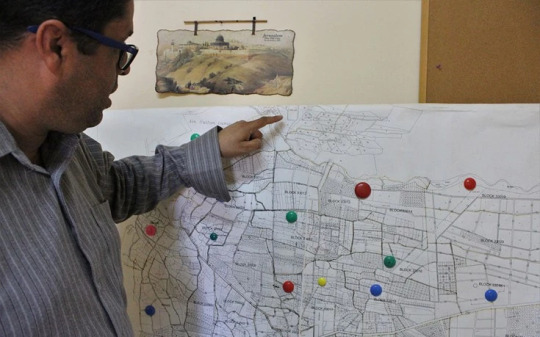
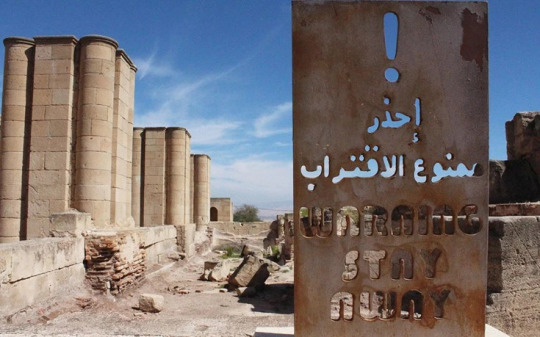
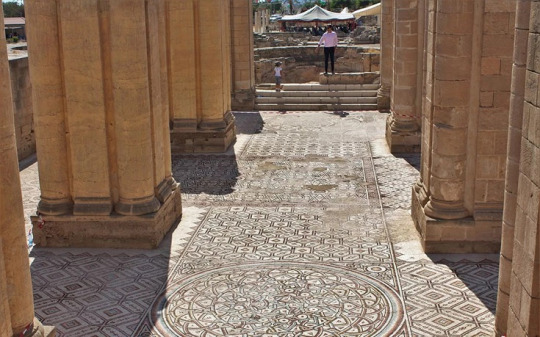
Through shared endeavors in archaeology and cultural preservation, Palestinians and Japanese forge bonds of friendship and mutual respect, enriching both societies in the process.

https://pcpsr.org/ar/node/893
D) The Representation of Palestinian Girls in the Anime "Canaan":
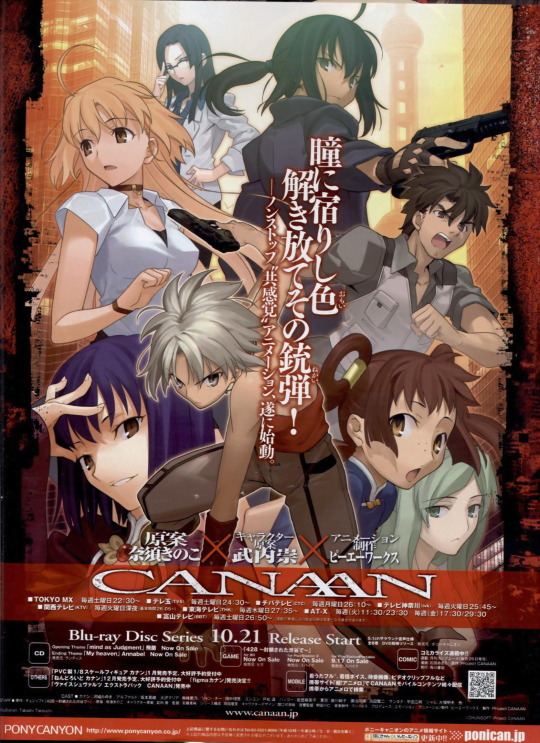
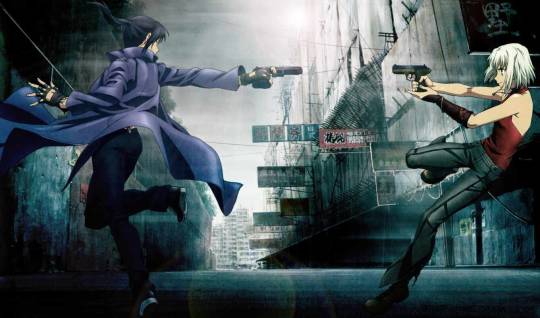
In the world of entertainment, the original anime "Canaan" offers a unique portrayal of Palestinian girls, Alphard and Canaan, whose contrasting backgrounds and beliefs shape their identities and actions.
Plot:
A Palestinian teenaged girl and a mercenary, Canaan is dispatched by her unknown superiors to the city of ShanghaiWP in the People's Republic of ChinaWP where she meets up with Maria Ōsawa. Now a photographer, Maria reunites with her friend Canaan after being saved from harassment, during a trip to the Middle East years ago. Their presence in Shanghai, however, has been greatly overshadowed by the upcoming,crucial NBCR International Anti-Terrorist Conference in the same city where Alphard(Canaan's hateful rival) plans to stage a terrorist attack with her subordinates known as "Snakes".
💕The Palestinian girl Canaan is amazingly pretty(kawai).💕 Her eyes are now radiant red because of her synesthesia:An ability as a radar to locate others, to hack into mechanical systems, and to dodge/deflect bullets easily.
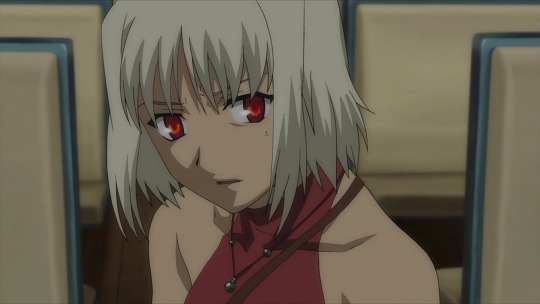
Through their characters, the anime explores themes of conflict, identity, and resilience, offering viewers a nuanced perspective on the Palestinian experience. While fictional, the depiction of Palestinian characters in "Canaan" reflects the diversity and complexity of Palestinian society, challenging stereotypes and fostering understanding.
#Palestine#Bronze Statue of Apollo#Ancient Greek Artifact#Culture#Palestine Gaza#Khirbat al-Mafjar#安藤正浩#Type-Moon#Hisham's Palace#Jericho Palestine#Masahiro Andō#Mari Okada#岡田 麿里#Canaan anime#カナン#P.A. Works#株式会社ピーエーワークス#I Love Japan#日本が大好きです#I love Palestine#私はパレスチナが大好きです#ancient Greece#古代ギリシャ#Palestinian child Mahmoud Abu Nada#cute manga girl#かわいい女の子#Kawaī#archaeology
2 notes
·
View notes
Text






APOLLO/APLU
The god, in an unusual, almost dance-like pose, is represented in the act of drawing the bow.
Etrusco-Roman bronze votive statue
Hellenistic period Roman Mid-Late Republican period, 2nd cent. BCE
Excavated from the sacred well in the sanctuary at San Casciano dei Bagni
On display at the Museo Archeologico Nazionale di Napoli, Naples, Italy
#apollo#apollon#greek mythology#greek gods#hellenic polytheism#statue#sculpture#bronze#etruscan bronze
246 notes
·
View notes
Text
Ok long yap but I wanna write a camp halfblood au for bsd so bad askljalsdj bc hear me out yosano daughter of hades grows up in an orphanage (run by fukazawa, who acts as chiron in this au just like chiron works at percy's school trying to keep an eye on yosano) and ranpo grows up in the same orphanage, but ranpo is a mortal who can see through the mist. and like yk how sally was at risk for monster attacks bc of how much time she spent with percy despite being human? the same thing applies to ranpo. So when fukuzawa needs to take yosano to camp halfblood for her own safety he takes ranpo too, who just says he was "claimed" before they reached camp-halfblood to keep the "he doesn't have an ability but he acts like he does" vibes
Back at camp halfblood we've got Poe, son of athena who arrived at camp halfblood after his uncle decided he couldn't deal with the demigod stuff (his dad was already dead atp), and lucy who arrived a year before yosano and ranpo with louisa and is a daughter of Hephaestus who makes giant bronze battle statues like the ones across manhattan in the pjo series that look like Anne from Anne's room
Louisa is also a younger daughter of athena ofc
We've also got Dazai as a son of Dionysus with his laid-back but manipulative vibes and Chuuya son of ares (I don't wanna make them children of the big three bc I'd want Atsushi to have that) with Kouyou and Verlaine also children of Ares w him, and then Atsushi is a son of zeus and akutagawa and gin are children of hermes (so akutagawa feels inferior like a lot of the kids of hermes do in canon bc their abilities aren't really combat focused)
Kenji son of demeter, obviously, Kyouka hunter of artemis and tanizaki is a mentee of hecate (which was established by hazel as a thing in the 2nd series) with Naomi being a prophet like rachel?? Kunikida is an apollo kid who utilizes poetry and appreciates rising with the sun (hes a pretty unusual child of apollo which makes dazai try and get him to loosen up) and he's head of the cabin and takes very good care of the younger campers
But like??? It works??? ive been thinking about this au so much im obsessedddd if I wrote it it probably wouldn't be like pjo canon compliant just using the camp as an au but i think it would be so much fun aslkjalksdjka
#ranpo claims to be a son of iacchus or despoina who are minor gods related to the eleusinian mysteries#but that is subject to change#i just love the idea of lucy making giant ragdoll-looking bronze statues that fight for her#she is banned from using them during capture the flag#id have to switch up their ages a bit but id probably keep age groups the same so ranpo and poe similar age#and lucy atsushi louisa etc same age#something like that#i love the idea of son of dionysus dazai but i could also see son of hermes so akutagawa has even more of a reason to look up to him#also yosano would be getting her spotlight which i love#shes a daughter of hades but forces her way into the infirmary because dammit shes gonna be a doctor one way or another#plus kunikida being a son of apollo means he probably helps yosano become a healer#sigma and ango are also children of athena btw#and i love kouyou daughter of ares i think it would be so cool#plus maybe verlaine and rimbaud get their tragic backstory on the way to camp halfblood#like how thalia sacrifices herself for annabeth grover and luke to get to the camp#maybe thats how they got chuuya there or something#ok ill probably yap more about this eventually but i need to stop clogging the tags lmao#bungou stray dogs#bsd yosano#bsd ranpoe#bsd poe#bsd lucy#armed detective agency#port mafia#ranpoe#camp halfblood au
38 notes
·
View notes
Text

Charioteer of Delphi
* 478/474 BCE
* Bronze
* Height: 1,8 m
* Delphi Archaeological Museum
Delphi, October 2008
#Charioteer of Delphi#5th century BCE#Delphi#Pythian Games#Sanctuary of Apollo#Polyzalus#Pythagoras of Rhegion#ancient#art#Greek#bronze#statue#sports#Delphi Museum#my photo
76 notes
·
View notes
Text
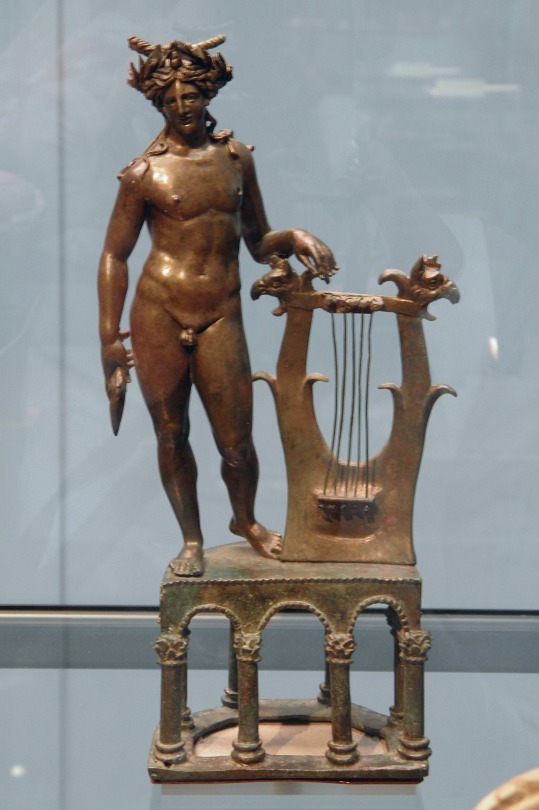
Bronze statuette of Apollo Citharoedus
Currently at Staatliche Antikensammlungen, Munich.
Photo source: 🏺
#APOLLO 🌞#ANTIGÜEDADES 💎#I have... no idea what century or province he's from? Museum links back to Carole Raddato and she doesn't mark it.#Other bronzes in the same collection are from 2nd century AD. Which... it matches up with when I'd expect to see it in Rome.#art#bronze statue#greek mythology#roman gods#apollo#apollo citharoedus#id in alt text#mediterranean gods
62 notes
·
View notes
Text
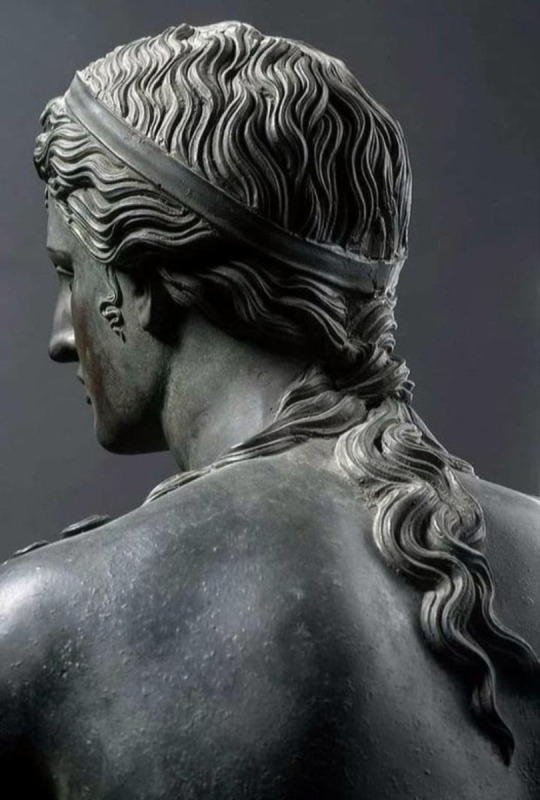
2 notes
·
View notes
Text
Guess who just finished the first toa book!!!
#leo and calypsos return has given me life#and percy just showing up calling a murderous statue bronze butt??#i love them sm#toa#trials of apollo#the trials of apollo
13 notes
·
View notes
Text
"oh what's going on in his head?" me: pre-canon gods.... BRONZE AGE gods.... their lives before they were forced to be distant..... some of the myths becoming more sinister with the canon narrative at play.... BRONZE AGE FASHION....
#that's why sometimes my apollo has suns/rosettes painted on his face#because of that face plaster found at mycenae#and i see him as a gnc man#this is the god who you'll find art and statues of him in dresses and veils#i swear i need to start designing bronze age designs and their current era design for them#i have apollo somewhat down#i just need to actually do the modern day#but the bronze age fashion is so fun#lee speaks#rrverse
0 notes
Text
love & war — ares!gojo x aphrodite!reader
part 2 of all’s fair. 18+, YEARNER gojo, LONG HAIRED GOJO I REPEAT, LONG HAIRED GOJO. jealous & sort of possessive gojo, he breaks your wedding ring. cunnilingus while u sit on ur throne, squirting.

the feast is decadent.
ambrosia drips like honey from silver goblets, pooling at the edges like nectar too sweet to swallow. laughter rings through the marble colonnades of mount olympus, reverberating against pillars gilded in gold, lilting and hollow—like a song sung too many times, a chorus with no soul. but the gods don't care for meaning. they care for spectacle.
and tonight, you are the show.
you sit at hephaestus' side, spine straight, expression the picture of benevolence. the torchlight catches in your hair, setting it aglow like strands of molten gold. the chiffon draped across your body slips just so—revealing the curve of your thigh, the soft swell of your shoulder, the shadow between your breasts. suggestive, never vulgar. worshipped, never touched.
you tilt your goblet, fingers tracing the rim like you're tuning a lyre. your lips, red and warm, brush the edge but never drink. your eyes flutter closed as apollo's laughter crescendos, and you feign delight—mouth curling in a smile that could bring mortals to their knees. beside you, your husband remains silent. his hand is steady on his chalice. he forged the ring on your finger with hands calloused from fire and fury, and yet you wear it like it's forged from spider silk—a fragile thing, breakable.
and you don't look at satoru.
not at first.
but oh, you feel him.
his presence seeps into the room like smoke. the god of war is leaned lazily against his throne across the hall, the picture of restraint. clad in armor darker than midnight, trimmed in crimson, his white hair is tied back by a ribbon dyed red, trailing down his back like a war banner, a declaration. but his restraint is a lie.
his goblet remains empty. always empty. he drinks nothing tonight—not wine, not ambrosia—because it is only you that he hungers for.
his blue eyes, pale and gleaming, fixate on you. they don't waver. not once. they drink in every movement of your fingers, every curve of your smile, every deliberate flutter of your lashes. he watches you toy with your ring like it's a sin he's yet to commit. he watches you lean closer to dionysus, watches your laugh tilt toward apollo, watches your bare foot slip from under the tablecloth like a secret invitation. it's cruel. deliberate.
it's punishment.
your favorite dress, ruined. your thighs, bruised. your lips, bitten and left cold in a tent heavy with the stench of blood and iron and war. he kissed you like a man possessed, like a god starved. then he left you aching.
and now?
he aches.
not with the sharp, glorious pain of battle—but something worse. duller. quieter. the kind of ache that sits beneath the ribs and gnaws like hunger, like longing.
when the feast ends—when wine-soaked laughter fades into sultry sighs, when silk rustles and marble floors grow slick with pleasure—you do not rise.
you stay seated in your throne, golden and still, carved like a statue of temptation by hands far crueler than fate.
you wait.
and like always, he finds you.
you don't hear his footsteps. only the subtle shift of air. the softest rustle of a crimson sash brushing against bronze armor. then the press of a shadow curling into yours like a secret.
“that's twice now,” his voice comes low, smoked silk and sharpened edge, curling around your spine. “once on the battlefield. now here. you like making me wait?”
his tone holds accusation—but the way he looks at you, moonlight caught in those cerulean eyes, it's not anger. it's reverence. it's ruin. it's worship.
he looks like war incarnate dressed in restraint—white hair tied back by a ribbon the color of spilled blood, pale skin brushed faintly gold beneath olympian firelight, armor kissed by countless hands but pierced by none. and he looks at you like he's starved. like he would gut himself if it meant dying with your name on his lips.
your lashes lower, slow. you don't turn to face him yet. you let the pause bloom between you, heavy with all the words you shouldn't say and all the touches you're not allowed to crave.
then—deliberately—you twist to meet him.
your gaze is lazy, liquid, the wine having turned your movements feline. your dress slips like a sigh over your thighs. your lips curve just enough to wound.
you reach to press a palm flat against his chest, over the gilded armor. his heat hums beneath it. a mortal man would be scalded.
“you ruined my favorite dress,” you murmur, voice hushed and sugared. your fingers curl, tracing the seam between plates of gold. “and left me in a tent that smelled of blood and glory and you.”
he breathes in sharply, jaw ticking once—just once—but it's enough. enough to unravel you.
his exhale is quiet, but charged, like the hush before a battlefield scream. his chest rises with restraint, sinewed muscle tense beneath his black tunic, straps of armor left discarded at the threshold like a promise he intends to break.
he steps forward. slow. deliberate. like the way fire creeps, hungry and patient. another step. then another. the weight of him warps the air. heat blooms in your lungs.
your hand stays raised between you like a shield, but your wrist trembles, traitorous. it remembers the weight of his grip, the way his fingers once mapped constellations into your skin. your mind whispers no. your pulse chants yes.
his eyes flicker—not to yours, but to your hand. to the ring.
“and you think this—” his voice, low and hoarse, curls at the edges like smoke, “—wearing this ring makes us even?”
he slides his fingers beneath yours, not with force, but with reverence. with fury disguised as grace. he lifts your hand like it's an oath he's been denied. like it's home.
he doesn't meet your gaze. his attention stays pinned to the band of gold—hephaestus' craftsmanship, forged in fire and jealousy, fitted for a goddess who never wanted to be possessed.
he looks at it the way a warrior looks at a wound he cannot close. as if it mocks him. as if it dares him to tear it off with his teeth.
his thumb ghosts over it. slow. scalding. like a brand.
you inhale, lips parting to say something cold, something final—but your voice crumbles before it can reach your tongue. all that leaves you is a whisper, soft and shaking, “you shouldn't even be touching me.”
his head lifts.
his eyes—blue, impossibly bright, like the sky just before it breaks—lock onto yours. and they don't just look. they consume. scorch. drink you in like a man dying of thirst, parched from years of wars he didn't win, undone by a beauty he was never meant to hold.
you feel it then, the tremble in the air between you. like something sacred cracking. like prophecy catching fire.
“then stop me.” he says.
his voice isn't loud. doesn't need to be. it's low, rough like gravel but sweetened with reverence, a thread pulled too tight, fraying at the edges. and it tugs at something inside you—something soft, something ancient.
your fingers twitch in his grip. not to pull away. gods, never to pull away. but to stay. to linger. to clutch the fleeting moment like it might fly from your grasp if you dared to blink.
you don't stop him.
instead, you tip your chin up, just slightly. prideful. defiant. divine. and you raise your hand higher between you both, baring the delicate line of your wrist like an offering on an altar. like a lamb to the slaughter. like a challenge written in perfume and silk.
“go on, then,” you whisper, lashes lowered like a veil. the words curl out of you like smoke, like honey laced with venom. “break another rule.”
and he does.
not with rage. not with thunder.
but with reverence.
he sinks to his knees—not like a soldier kneeling before his commander, not like a penitent before a god—but like a man who has already decided that he would rather burn at your feet than live untouched in another's arms.
the marble floor groans under him. the sound is quiet, but it echoes, somehow—sharp and cold, like the world remembering how to breathe.
his white hair, bright as new snow and wild as flame, slips loose from its ribbon and cascades around his face like falling starlight. it brushes against his cheeks, glows silver where it catches the lamplight. divine. disheveled. ruinous.
his hands are warm when they cradle yours. calloused from centuries of war, yet careful. trembling, just barely. he lifts your fingers like they might dissolve in his palms.
he bows his head to the ring—hephaestus's ring, forged in fire, in resentment, in the echo of zeus's command—and kisses it. once. twice. the third time, his lips linger.
then—he bites.
there's no warning. just a clean snap. metal splits beneath his teeth like fate surrendering. the ring breaks. falls. its fragments scatter across the marble like shattered promises.
and you exhale, shivering. not from fear. from recognition.
his mouth finds your bare finger again, lips dragging slow over skin where the band once sat. his teeth press again—gentler now, but no less possessive. he doesn't break the skin.
but the mark blooms anyway.
golden ichor wells to the surface. one drop. warm. pure. precious. it gleams like molten starlight, catching the flicker of torches. it doesn't harden, but it remains—a glimmering, radiant mark that pulses like a gem, impossibly beautiful against the curve of your skin.
no forge. no chains. no vows.
only power. only him.
his ring. your ruin.
he doesn't move. doesn't rise. just kneels there, his mouth hovering over your skin, his breath soft and reverent like a prayer whispered at the altar of something sacred. his eyes flutter closed, and there's a tremor in the air between you.
he lifts his head just slightly, the weight of his gaze pulling you deeper than any touch could. his voice breaks the silence, low and broken, the words crackling with something raw.
“this... is the only semblance of a ring i can give you.” he murmurs, as if the words are both a gift and a confession, an admission of a longing that has no end.
it carves through you like lightning.
you should pull away. remind him of the vows you wear like shackles. of your station. your symbols. that zeus did not gift you to hephaestus out of kindness, but as a solution. a ceasefire.
but instead—your hand lifts. as if guided by something older than reason. you cradle his face in your palm, thumb brushing the sharp angle of his cheek. your golden ichor paints him—bright against pale skin, like warpaint. like a claim.
“you'll get me killed one day.” you say. the words float out of you soft and slow, silk soaked in prophecy.
he laughs, low and broken and full of something starved.
“only if someone gets to you before i do.” he turns his head, catches your fingertip between his lips. kisses it. reverent. ruinous.
his lips trail down your wrist, slow—like he's savoring not flesh, but fate. your breath hitches. somewhere behind you, the world still feasts. but here, in this quiet ruin, it's only the two of you. the war god, and the goddess he was never meant to have.
“do you want me to stop?” his voice cracks, a threadbare rasp that trembles with something dangerous.
you don't answer, not right away.
your body shifts, the fabric of your chiton whispering against your skin, slipping like liquid gold, pooling at your hips, revealing just enough to stoke the fire smoldering in his gaze.
his eyes darken, pupils swallowing the blue entirely, consumed by the weight of you.
satoru, the untamed. satoru, the one who has never known restraint. satoru, brought to his knees by the soft curve of your thighs.
you lean down, your breath warm against his ear, lips grazing the shell, barely there. “then kneel properly.”
and he does.
the groan of his armor is deafening, the pressure of him against you—heat and steel—his forehead against the crest of your hip, his nose tracing the curve where skin is softest, most vulnerable. his hands, large and calloused, find the firm flesh of your thighs, not with the intention to mark, but to learn, to remember. every small movement you make, every breath you stifle, he maps them, tattooing them in his mind like a strategy, like war.
his tongue flicks, slow, deliberate, not a conqueror's claim but a prayer. grateful in it’s intensity.
you arch into him, your back a taut bow, the world blurring for a moment as the weight of his touch splits you in half.
the torchlight bathes your skin, casting molten gold over the sweat-slick column of your throat, the flutter of your lashes so delicate, like wings caught in the flame. your fingers twist in his hair, not guiding—never guiding—just holding on.
as if you fear the heavens might tear him away from you, pull him from your reach.
he notices. of course, he does.
satoru, who feels the tremor before the spear flies. satoru, who senses the precise moment an enemy's resolve crumbles to dust.
his hands slide upward, fingers finding the curve of your waist, thumbs pressing into the soft hollows beneath your ribs. it's a question without words. a question only you can answer.
and you do.
you roll your hips once, sharp, precise, and his groan cuts through you, the sound shaking your bones, a crack of thunder in the silence of the room.
“satoru—”
your voice breaks, a whimper caught between prayer and curse. the ceiling above, painted with the gods' own hands, seems to sway with the weight of it—or maybe it's just your vision, blurry at the edges.
he pulls back just enough to catch your gaze, a smile curling at the corners of his lips, glistening, intoxicating.
“louder,” he demands, voice as dark and thick as smoke from war-horns. “let them hear.”
you kick him, weakly, a distant protest, your heel sliding off his pauldron with a dull clang.
his laugh is ragged, breathless, a sound that rattles the air between you then he dives back in.
no hesitation. no mercy. just hunger, raw and relentless, like he's been dreaming of this moment for centuries. his hands grip your thighs, fingers pressing into the soft flesh hard enough to leave marks, hard enough to remind you who you belong to. his mouth moves with the kind of skill that comes from obsession—from nights spent imagining exactly how you'd fall apart for him.
and oh, you do.
It builds slow, then all at once—a coil tightening in your stomach, your back arching off the throne, your fingers twisting in his hair like you're clinging to sanity itself. you bite your lip hard enough to taste ichor, but it's no use.
the world simply narrows to heat and pressure and the slick drag of his tongue and you break.
a choked gasp rips from your throat as your back arches off the throne, thighs clamping around his head like a vice. golden ichor spills—not the slow trickle of a wound, but a flood, a surrender, dripping down his chin, painting his lips in liquid radiance.
he doesn't pull away.
he drinks.
greedy. reverent. as if this—your ruin, your release—is the only ambrosia he'll ever crave.
when he finally lifts his head, it's with a slow drag of his tongue along your inner thigh, savoring every drop. his breath fans hot over oversensitive skin as he surveys his handiwork—your trembling limbs, your heaving chest, the mess glistening between your thighs.
“look at you,” he murmurs, voice wrecked. his thumb swipes through the gold streaking your skin, smearing it like war paint. “all that pretty composure, shattered.”
your cheeks burn in embarrassment as you kick at him again, but it's weak, the force gone, the desire too heavy.
he catches your ankle with ease, his grip unyielding. his lips pressing to the arch of your ankle, tender, almost reverent. then his teeth find it—sharp, a bite.
you jolt beneath him, a shiver running through you like lightning.
“still sensitive?” his voice is dark with satisfaction, low and predatory. he runs his tongue along the mark he's left, soothing it, his mouth just as cruel as it is tender. “good.”

a/n : ares gojo brainrot so bad i wrote this instead of continuing my wips... dunno if i made some misconceptions since im not that invested on greek mythology but if i did yall can expect my apology video w/ tears 😔✌🏻 first time actually trying to write smut omg dont jump me i did my best... part 3 someday idk
#gojo x female reader#gojo satoru x reader#satoru gojo x reader#gojo x reader#gojo satoru#gojo smut#jujutsu kaisen#jjk x reader#jujutsu kaisen x reader#jjk fanfic#reader insert#ares!gojo#jjk smut#౨ৎ — filed reports
2K notes
·
View notes
Photo
Guardian: Rare find of 24 ancient bronzes in Tuscany goes on display in Rome
Youtube: The discovery of San Casciano dei Bagni statues with Veronica Iacomi.

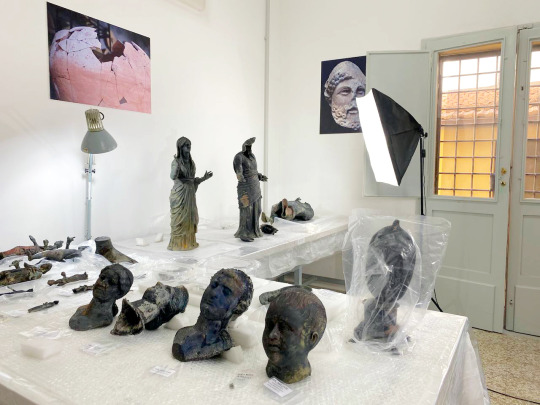
San Casciano dei Bagni bronzes ©: Ministero della cultura
#archaeology#San Casciano dei Bagni bronzes#ancient#art#statue#bronze#Etruscan#Roman#Apollo#Hygieia#Tuscany
1K notes
·
View notes
Text
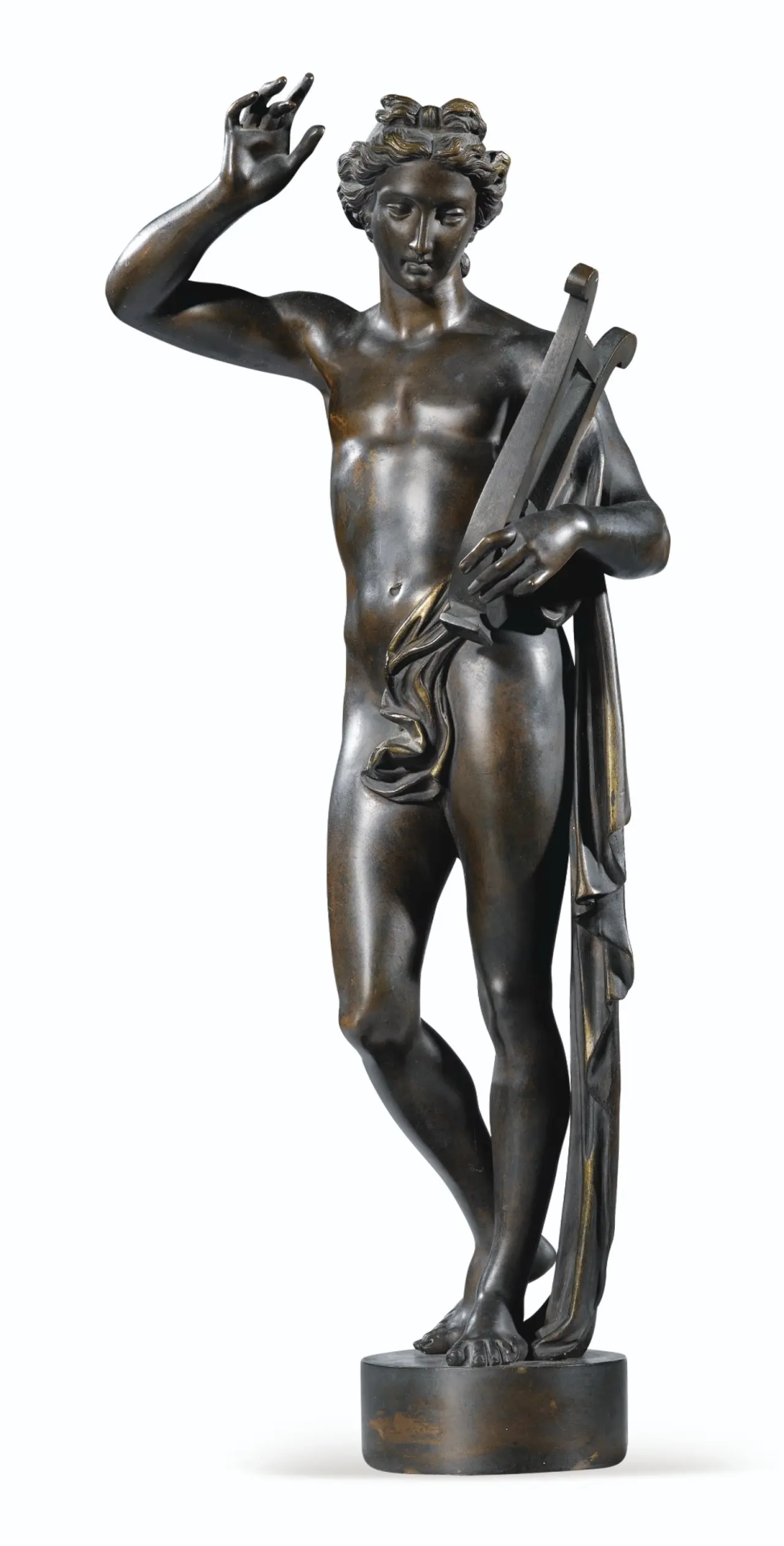
Apollon and his lyre
Bronze statue (circa 1800)
286 notes
·
View notes
Note
Did you ever read WW historia?
I have now!
In terms of pure visuals, easily the prettiest thing I've read this year (in the February-to-February sense of the term, I'm not pulling a 30-rock cutesy non-statement here.) It definitely feels constructed as a negotiation with some of the tensions I've been waving at, but it's a deft one- handily resolving the overarching "what's the exact nature of the project here" energy through its aggressive commitment to a specific direction- an epic in the idiom of the Illiad or the Oddessy- it's status as the narrative of the founding of a nation, with enumerated mythological lineages for the Amazons, godly politics-of-personality jerking around the protagonists even at their best-intentioned, slaughters predicated on myopic cries for "justice" that are couched in a fundamentally misogynistic moral ordering of the universe (Getting Oresteia flashbacks with Apollo.) Zeus is a particularly compelling villain in the piece, with that cheerful, condescending, paternalistic adherence to a bronze age morality that's not nearly as alien to the present day as one might like it to be. From within his own moral system, he does nothing wrong, which is as good a condemnation of that system as any.
What I really like about it is how it in particular addresses the longstanding tension- not unique to Wonder Woman as a franchise, but always present to some extent- of an impossibly-advanced sequestered utopia trying to provide guidance to a population under so many more material constraints than them that they might as well be space aliens. The book expresses that there's a level on which the initial group of 30 goddess-crafted Amazons- the divine, born-as-adult utopian agents- can look like women, intervene on the behalf of, fundamentally align with women, but, before they meet Hippolyta, there are important ways in which they only fleetingly interact with women as a human social category. They strike from the shadows, kill some oppressors, and fuck right back off- which is cathartic, but none of the mortal women they "rescue" are left in a significantly better position by this alone. That's not an arbitrary strategy; In suitable Greek tragedy fashion, everyone in this narrative is beholden to something, and the original Amazons are beholden to the system in the sense that they have to hide what they're doing so they don't get turbofucked by Zeus and company. But they are very pointedly not beholden in the sense of having to make soul-destroying choices as a result of the gendered boot that they're under. They don't have to, say, live with the guilt of being made to leave an extraneous newborn girl to die of exposure.
Moreover, even in isolation, even with a headcount of 30, the book gestures at the idea that the first wave of Amazons are developing their own systems of norms, orderings of power and hierarchy, valorization of specific traits and rigid systems of categorization based on aligning with different goddesses:
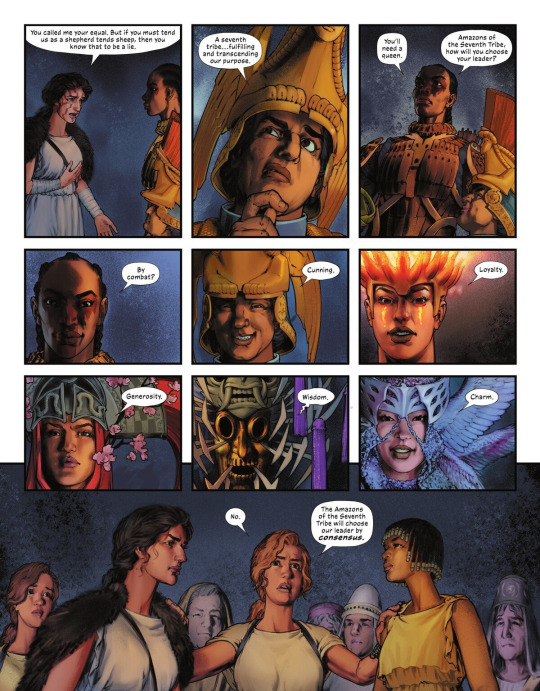
Hippolyta bounces off these requests for categorization hard even as she petitions to join- she sees value in the category, but not the expectations. What DeConnick has done here is engineer a situation where the Amazonian founding narrative is a story about how the identity category of "Amazon" was forcibly expanded until it could accommodate everyone to whom it would be useful- do the work it was intended to do as a positive force in the world. Strict ontology subordinated to questions of practical harm. I think the intended applicability to other issues is obvious.
This brings me to the tail end of the narrative, another of many things I like- As I mentioned before, this whole thing is constructed as a national founding myth, right? The Aeneid, but for Themyscira. But it's not a triumphant story. It's not a tale of glorious conquest, it's not a narrative about how the Amazons turned their backs on a fallen world and carved out their utopian little enclave. They don't live on Themyscira because they're nationalists, or female separatists, or whatever other dunk Azzarello wants to advance. They live on Themyscira because they aren't allowed to leave. Themyscira is an act of suppression. Partly a "cruel mercy" punishment from Zeus and company, loss of freedom constructed as worse than death for the Amazons; implicitly, also a containment tactic, to keep their ideas from spreading.
Much of this was engineered through the machinations of Hera, who presents this National-founding-as-tragedy as the best that could be done under the existing constraints; a setback, a compromise, a launch pad for future endeavors, but still a meaningful defeat, something that Diana, the first and only child actually born on the island, is going to have to work to rectify.
#ask#asks#this has been sitting in my drafts for three months because I was having trouble getting that scan and then forgot about it lol#hence “february-to-february”#thoughts#meta#wonder woman#reviews#wonder woman: the historia
91 notes
·
View notes
Text
⌜Godly Things | Chapter 57 Chapter 57 | forged, not made⌟
╰ ⌞🇨🇭🇦🇵🇹🇪🇷 🇮🇳🇩🇪🇽⌝



❘ prev. chapter ❘༻✦༺❘ next chapter ❘

You managed to slip away.
It wasn't easy.
Apparently, Hermes had arrived.
And according to the frantic shouts echoing down Apollo's corridors, he'd come after hearing you were on Olympus.
You weren't supposed to be seen yet. Not by the other gods.
Not by him.
Apollo had gone tense as soon as the winged god arrived. His smile never broke, but the air changed. You felt it. His grip on your waist had stiffened, and when Hermes' laughter echoed from the hall, Apollo turned, murmuring low to a handful of his attending nymphs.
"Take her," he'd said through his teeth, voice tight with fury, "somewhere he won't find her. Anywhere."
You hadn't been asked, and you hadn't resisted.
The nymphs had whisked you through a maze of corridors, singing nonsense to mask the sound of their footsteps, until you lost count of the turns. You tried to ask where they were taking you, but they giggled instead of answering.
And somewhere along the way... you lost them.
You didn't mean to.
One turned left. The other vanished behind a curtain. The third darted up a spiraling stair, and when you tried to follow—they were gone.
And that's how you ended up here, standing at the mouth of a place that pulsed with heat and breath and sound.
A forge.
A cave-temple tucked deep into Olympus' bones—one that smelled like scorched metal, citrus peels, and steam. The air shimmered with heat that came in waves, not violent, but constant. You stepped forward slowly, the soles of your shoes whispering across black stone streaked with gold veins. The walls pulsed with a low hum, like the mountain itself was exhaling.
It was dim here—soot-dim, ember-dim. The kind of light that never turned full, just glowed.
And gods, it sang.
Not with lyrics. Not with harps or choirs. But with the sound of flame licking iron. With bellows that breathed and gears that groaned. The rhythm of pressure and release. The language of shaping things that last.
You moved carefully, watching as clockwork arms shifted from the shadows—presses, hammers, tongs, all forged into the cave walls themselves. The scent of hot bronze and bright lemon oil curled in the back of your throat.
And in the center of the forge—half-cooled and humming—a sword rested on a pedestal.
You didn't think, you just reached.
Your fingers brushed the hilt, and the sword sang a single, high-pitched note; it rang out—clear, steady, echoing through the cave, not loud, but felt—as if it recognized your touch. As if your skin remembered something it wasn't supposed to. The sword vibrated once beneath your palm, and you swore it leaned into you.
You pulled your hand back slowly, and the forge pulsed with light.
Because whatever this place was—whatever god had shaped it—
It felt you.
Divine-touched.
Unmarked.
But not unmade.
And then—
A voice.
Deep. Rough. Slow as smoke rolling over dying coals.
"Well now," it drawled from somewhere behind the machinery, low and amused. "You look a little lost."
You spun, your heart shot into your throat.
There—emerging from the shadows—was something massive.
You took a step back before your mind even told you to.
The forge shifted around him as he approached—gears creaking, embers flaring, shadows peeling away like they knew to make room.
He stepped into the low light—
And gods.
He was huge.
At least twice the size of Ares—and that alone was saying something. His frame took up space like a statue carved to intimidate. Shoulders broad enough to block out the glow of the forge behind him. Arms like pillars. A chest so broad you swore the forge-light warped around it. His presence pressed into your skin, not cruelly—but inescapably. Like the weight of history.
He could've stepped over you without trying.
But it wasn't just size.
It was presence.
Like gravity had wrapped itself around his spine.
His skin was darker than Ares', bronzed and kissed by heat. Not scarred from blades, but singed from something older—embers and flame. Faint burn marks danced along his arms and jaw, kissed into him like paint strokes from a fire that loved him too much to hurt.
And his hair—thick. Wavy. Copper-dark, like metal left out in rain. It fell heavy across his back and curled near his jaw, lit from behind by forge-light, making him look carved from both ore and smoke.
He looked like Ares.
But wasn't.
There was no war-lust in his grin.
No battlefield swagger.
Only the steady amusement of someone who'd watched gods break things for centuries... and been the one to fix them.
His molten eyes slid over you—not predatory, not hungry. Not warm.
Just curious.
Your mouth hung open. No words came.
Still, you didn't move.
Couldn't.
Then—he snorted. The sound was low, rough—like gravel scraped across metal. Without waiting for you to speak, he limped past.
That was the first thing you noticed.
The limp.
Subtle, but real.
His left leg dragged slightly. The motion shifted his balance with every step—less graceful than the gods you'd seen before. But grounded. Real. He leaned heavily on a thick, forged-looking cane—iron or obsidian or something else—and dragged the pointed base with him.
Scrraaaaape.
You winced as the sound echoed through the cavern.
He muttered something under his breath. "Always the same. Always touch the damn sword first..."
He passed you like you weren't even there.
Not out of malice, but as if you would be there. Like you were just another part of the forge now—something to be expected.
He stopped by the long stone bench you'd been near before. The same one where the sword had sung beneath your hand.
His hand—massive, burned, deliberate—reached down and picked it up.
Easily.
Like it weighed nothing.
He turned—limping, dragging the cane again—and made his way to a wide, open flame glowing in a hollow near the back wall. The fire burned blue at the center, shifting to red along the edges. Hot enough to hum. Ancient enough to feel alive.
He didn't hesitate.
He plunged the sword into it.
Not fast.
Not violently.
Just... firmly.
Like he was returning it.
The fire shuddered.
And the sword disappeared into it like it had always belonged there.
That—that broke you out of it.
The trance. The weight. The silence.
You blinked hard, like it might shake the soot from your throat. Your mouth opened before your mind caught up. "I—I'm sorry," you blurted, the words tripping over each other. "I didn't mean to—I wasn't trying to—gods, I didn't know anyone was here, I wasn't trying to touch anything, I just—"
The man paused.
He didn't look up right away.
Just stilled. Let the cane rest against the stone edge of the forge. Let the sword burn quiet in the flame.
Then slowly—slowly—he turned to face you.
His molten eyes met yours.
Not sharp.
Not angry.
Just... tired.
Worn smooth like riverstone.
He looked at you for a long moment, then let out a breath. Not a sigh of exasperation. More like a release of heat he'd been holding for too long.
"No worries," he rumbled. "No one comes to bother me anyway."
You didn't know what to say.
You just stood there, heart pounding like you'd been caught stealing fire from the gods.
The man's massive hands adjusted the thick leather strap at his waist. The blacksmith's apron he wore was marked with burns, soot, ash—each one older than youd ever be. He gave a one-shouldered shrug.
"I'm Hephaestus," he said simply, like it didn't mean anything.
But it did.
You blinked, mouth parting in a breathless, stunned echo.
"Hephaestus?" you repeated, voice cracking slightly. "As in... the Hephaestus? The god of fire? Of... of forging? Of—"
Your words trailed off.
Because what came next? Of flame? Of volcanoes? Of divine rejection? Of being cast from Olympus before you could walk? It all felt too heavy, too strange, too personal to speak aloud.
The god turned slightly at the sound of your voice.
And for a brief, flickering second—you swore he looked surprised.
Not proud. Not smug. Just... quietly surprised that you knew who he was.
But then—he scoffed. The sound was more breath than laughter. Like the air was too tired to carry anything more.
"Yeah," he muttered, dragging the sword from the flames, the metal hissing like a living thing. "That Hephaestus. Lucky you."
His tone wasn't sharp, but it wasn't warm either.
It was clipped. Flat.
Like your awe had poked at something brittle in him, and he'd learned long ago to wave it off before it could sting too deep.
He gripped the cooling sword tighter, then gave the tongs a short clink against the edge of the anvil. "Don't get too starstruck," he added under his breath. "I'm the only god who gets left off the golden statues."
Your mouth opened again—but you didn't speak.
There was something in his voice. Not bitterness exactly. Just a kind of tiredness. Like he'd long since stopped expecting anyone to look at him with anything but surprise or discomfort.
The forge fell into silence again.
Save for the low hum of flame and the shifting of steel.
You stayed where you were, unsure, until a few beats passed and he didn't tell you to leave. Didn't look at you again. Just focused on the sword—turning it, testing the edge, heat still curling around the blade like it missed being held.
So, you moved.
Slowly. Quietly.
You crept forward, step by step, until you were close enough to feel the warmth radiating off the fire. Close enough to see how the sweat clung to his arms, how his burn-scarred hands moved like music across metal. Deliberate. Fluid. No hesitance. No waste.
You didn't speak.
Just... watched.
And maybe it should've felt awkward. But honestly? You'd take this over where you'd been.
At least here, there were no poems about your smile. No hands cradling your face like prophecy. No golden-eyed god whispering about eternity.
Just fire.
And silence.
And a man too busy shaping steel to shape you.
So, you stood there, unmoving, until the heat from the forge had flushed your cheeks and your shoulders stopped trying to climb into your ears.
Then—finally—Hephaestus paused.
He set the sword down on a rack of black stone, let his tongs fall with a heavy thunk, and turned his head just enough to see you out the corner of his eye.
His voice was dry.
"What're you still doing here?"
You blinked. "I—uh..." You scrambled. "S-Sorry if I'm being annoying. I was just walking around and ended up here. I mean, not intentionally I just didn't want to go back to A—" You paused. Swallowed. "Back where I was."
He watched you for a beat longer.
You cleared your throat and finished quietly, "Your forge is... peaceful?"
He didn't smile.
Didn't frown either.
Just grunted and turned back to the fire.
You weren't sure if that meant you were welcome, but he hadn't thrown you out, so you stayed.
And after a moment—gathering a sliver of courage from the quiet—you said softly, "What are you making?"
Hephaestus went still.
Only a second, but you felt it.
Like he wasn't used to being asked. Like the question tugged at something half-healed.
"...Fixing," he muttered at last, bending to inspect the glowing edge. "Not making."
You waited.
He spit into the coals, a sharp hiss flaring up.
"Ares' damn sword."
The name came out like a coal kicked underfoot—sharp, hot, and bitter.
You didn't know what to say to that, but you had the sudden, strange thought:
This god—this mountain-sized, ember-lit force—was maybe lonelier than you.
And so that's how you spent the next few hours.
You didn't sit. Not really. There wasn't a place for that, and something told you it wouldn't have mattered anyway. The forge moved around Hephaestus like breath around lungs—everything bent toward him, fed from him, was him.
You stayed near. Close enough to feel the hum of heat, far enough to not be in the way.
And sometimes... you spoke.
Not much.
Just a question here or there.
Things like "What's that tool for?" "Why does the flame shift blue when it's hot?" "Is that bronze or something else?"
He answered. Gruff, blunt, and half the time without even looking at you—but he answered.
He called metal "stubborn" and wind "moody," said steel was better than silver because "at least steel doesn't lie to you."
You didn't understand all of it, but you listened.
He noticed that too.
Eventually, he moved on from Ares' sword—set it on a stand near the cooling wall and began gathering new materials. You watched him shuffle through drawers and bins full of ore and bone, odd glowing crystals, broken chains, soft cloth. He tossed them into a large shallow dish like he already knew what they'd become.
Then, without turning. "Hand me that hammer."
You blinked. "...Which hammer?"
His hand reached behind him—open, expectant.
You scrambled, glancing at the rack until you found the right one. It was slightly curved at the edge, marked with sigils that pulsed faintly when you touched them.
You placed it in his palm.
He didn't thank you, just grunted.
But that felt like more.
And then—just when the moment had gone soft again—he paused mid-movement.
Turned his head toward you, eyes narrowed.
"Tell me," he said flatly, "you weren't sent here to spy on me... were you?"
Your breath hitched. "What? N-No! I wouldn't—I didn't even know where I was going—I got separated from the nymphs and then—"
You stopped when he snorted.
A deep, rough chuckle rolled out of his chest, catching on soot and smoke.
"You should've seen your face," he said, lips curling slightly beneath his copper beard. "Gods. Thought you were about to bolt out the coals."
You flushed hot. "That... wasn't funny."
"Was a little funny."
He smirked—just briefly—and then went back to sorting his metals like nothing happened.
But something had.
You'd made him laugh.
A real one, too. Rough, short, scraped like gravel—but real. Not mocking. Not performative. Just a small sound carved from soot and surprise.
And it stayed with you.
You didn't say anything else. Didn't try to make another joke. You just let the warmth of it settle beside the heat of the forge.
But after a while, your gaze drifted back toward the weapon.
Ares' sword still rested near the edge of the coals—cooling, humming faintly, like it hadn't quite decided whether to sleep or scream.
You found yourself walking toward it slowly. Careful. Drawn.
The closer you got, the more you noticed it wasn't just a sword.
It was... loud.
Even at rest.
Not literally. Not with sound.
But with presence.
The edges were jagged in places—serrated not out of need but design. The metal was dark, almost black, but glinted red whenever the light caught it. Like it was always bleeding.
You tilted your head, gaze narrowing.
"It doesn't seem like it belongs here," you murmured, voice soft, almost reluctant. "Too angry. Too... loud."
Behind you, Hephaestus didn't stop working.
But he scoffed.
Low. Dry. Without looking up.
"That one only swings what he's told to," he muttered, hammering something glowing back into shape. "Even when it comes to who he kisses."
The words sat there in the heat, echoing off the stone like the aftersound of a hammer strike.
At first, you didn't react.
You just stood still—your gaze on Ares' weapon, but your thoughts... drifting.
Rising from somewhere deep in the back of your mind.
Myths. Half-remembered stories. Things whispered in candlelight by nursemaids and gossiped in temple halls. Of her—the goddess of love. Of him—the god of war. And the husband caught between them.
You remembered the tale now.
Not in full. Not clearly.
But you remembered enough.
The laughter of the other gods when the net dropped.
The way it was spun as comedy.
Not tragedy.
Even when it was.
Your mind flickered—unbidden—back to the banquet, to the first time you saw Ares. How he smiled with all his teeth. How Athena had mentioned her name when he got to handsy with you. How he sweetly called her "Dite."
Like it meant something.
Like it meant her.
You licked your lips, hesitating, then turned toward Hephaestus.
He was still hammering—methodical, even—but there was a slight hitch to the rhythm now. A pause too long. A beat too sharp.
You cleared your throat.
"Is it true..." you began, voice tentative, "what people say about him... and Aphrodite?"
The hammer paused mid-air.
You added quickly, "I mean—I only ask because the stories I grew up hearing, they always said you and she were—" you winced, "married?"
You swallowed.
"And that... the two of them—her and Ares—I just never knew what was real."
Silence.
The kind that made you want to take it back.
But then Hephaestus exhaled. Slow. Like bellows cooling too fast.
"The stories were real," he said. "And then they weren't."
He set the hammer down with a heavy clink, the metal cooling in a small hiss.
Then he laughed.
A low sound.
But it wasn't warm.
It came out rough, hollow, like a breath scraped across broken stone. And there was something else inside it—bitterness. Weariness. Like a splinter he'd never pulled out.
"And now, after all this time. You're telling me," he said, wiping the sweat from his brow with the back of one scarred wrist, "people still think we're married?"
He chuckled again—sharper this time, like a bark from deep in his chest. "That's rich. Gods, that's new."
You blinked, unsure how to respond.
He didn't wait for you to.
"And let me guess," he muttered, reaching for a set of cooled tongs, "the story's all about how Ares and Aphrodite were fated. Star-crossed. Couldn't help themselves."
He snorted. Spat to the side.
"A cheating scandal gets dressed up like a damn love story. That's Olympus for you."
Your brows furrowed, pulse ticking at your throat.
"So..." you started carefully, "you're not—"
"No," he said flatly, cutting you off. "Haven't been for centuries. Not since she got caught under one of my traps with him." He gestured loosely, not needing to say the name. "Whole damn pantheon watching. Caught like animals. Bed still warm."
You felt your stomach tighten.
"And what happened?" you asked quietly. "After?"
Hephaestus shrugged, but it wasn't casual. His shoulders rolled like they were carrying something heavy.
"I walked," he said simply. "Dissolved the vows. Let her go. Told Zeus if anyone else wanted her, they could take her. And someone did."
His gaze flicked to the sword again.
You followed it.
"They made it sound tragic," he added after a beat. "Two lovers caught, kept apart. One poor husband standing in the way."
You swallowed.
"But it wasn't tragic," he said, voice quieter now. "It was disrespect."
You said nothing.
Because there was nothing you could say.
Only the hum of the forge and the slow, steady clench of his jaw.
Then he gave another dry laugh. "Funny thing is," he muttered, "no one likes a clean ending. So they left that part out. Kept the myth where it stung more."
"Because people love a tragedy?" you offered.
He didn't look at you, but you felt the corner of his mouth twitch.
"They do," he said. "Especially when it's not theirs."
You didn't mean to look the way you did, but something must've shown on your face.
Maybe it was in the small frown tugging at your lips, or the way your eyes lingered on his hands a second too long—watching the rough knuckles and fire-blackened fingers move with quiet purpose, even as his voice dulled to something hoarse.
Because when Hephaestus glanced your way again—really looked at you—his brow furrowed, and the muscles in his jaw ticked.
And then, flatly. "Don't."
You blinked. "What?"
"Don't pity me," he said. "I don't want it."
There was no anger in his voice. Just steel. A forge-cold kind. Tempered. Sharpened by repetition.
You opened your mouth—then shut it.
He turned back to the embers, stirring something in the coals, but his words still carried across the heat.
"I knew what it was," he said. "Our marriage."
You didn't move.
"They said it was for unity. Peace. Said putting her with me made sense—kept her off the battlefield, away from the ones who might fight over her."
He pulled a hot ingot from the flames, set it on the anvil. The clang of metal against stone rang once. Then again.
"Safe," he murmured. "That's what they called it—me. Safe."
The word curled bitter in his mouth.
"It was easy to throw the goddess of love at the ugliest god in the room. No one would question it. No rivalries. No jealousies. No stakes."
He didn't look at you.
Didn't need to.
"Just one big joke no one said out loud."
You swallowed hard.
Because you didn't see a god right then.
You saw a man.
Standing in the middle of his own fire.
And still getting burned.
You shifted on your feet.
The words felt like they hung in the air, like soot that hadn't landed yet, but you didn't stay quiet this time.
You stepped forward, just slightly—close enough for the firelight to catch on your cheek, for your voice to reach without needing to rise. "I wasn't pitying you."
Hephaestus didn't look at you.
Didn't stop working.
So you kept going.
"I'm not sorry for you. I just..." Your fingers curled slightly at your sides. "I... I understand what it's like... To be chosen for someone else's convenience... To be picked—not because of who you are—but because of what it would solve."
That made him pause.
Just a breath.
You drew in one of your own. "No one wants to be a placeholder," you said. "No one wants to be told, you'll do."
Your voice didn't shake, but something inside you did.
You thought of the prophecy.
Of being Apollo's muse before you even had breath.
Of your name being stitched into place, not because you were meant—but because someone powerful decided they couldn't stand the silence anymore.
You looked at Hephaestus, his broad back half-turned to you, the orange glow lighting the edge of his jaw.
"I'm not pitying you," you said again. "I'm... just tired of being rewritten."
The forge was quiet for a long time. Only the low hum of the flame remained, as if even it were holding its breath.
Then—finally—Hephaestus looked over his shoulder. His expression had changed. The roughness was still there. But it was tempered now.
Softened.
And maybe a little surprised.
He studied you. Then—quietly, and just once—he smiled. Not a grin. Not a smirk. Just a small, genuine smile.
And then he turned back to the metal, the tools, the fire.
Back to work.
But something had shifted.
The air wasn't heavy anymore.
The space between you was no longer thick with old wounds or wary glances.
It felt warm.
Whole.
Like the last bridge had been laid. The last block lifted.
And you weren't standing at the edge of someone else's pain anymore.
You were standing beside it.
Hephaestus warmed to you the way iron did—gradually, deliberately. Not with flattery or open arms, but with space. With trust. He didn't look at you often, but when he did, it was less guarded now. Less like you were something unexpected in his forge—and more like you were meant to be here.
Eventually, he asked. Casual. Offhand. Like it didn't matter, even though it did.
"So," he grunted, adjusting the grip on a thick pair of tongs, "how long've you known about your prophecy?"
You blinked. The word landed like a dropped stone in your chest.
"My what?"
The fire god glanced at you, then snorted.
"You think I don't know?" he said, sliding a piece of gold into a heat dish. "You think anyone on Olympus doesn't?"
You stared.
He grunted again. "When Apollo starts writing again after centuries of sulking and blowing holes through the sun's schedule, people notice."
Your breath caught.
"Hyacinthus' death..." he went on, quieter now, voice coated in smoke and memory. "It nearly broke him. Light was off for weeks. Couldn't even keep the fire gods steady. We had temples freezing at dawn. His temples."
He wiped sweat from his brow with a wrist.
"And then—suddenly—he's building again. Playing again. Naming stars. All because a new name was whispered at Delphi..."
He looked at you.
Not with pity.
But with the worn patience of someone who's seen this pattern before.
"...You."
You didn't speak.
Not right away.
Because hearing it from him—someone outside Apollo's touch, someone who didn't dream you into being—
It felt different.
Like confirmation and dissection all at once.
Your chest tightened. You looked down at your hands. At the jewels hanging on your wrist. The sweat on your skin.
You breathed.
And then—harshly, before you could stop yourself—
"So I'm here because he got lonely."
The words tasted like iron, echoing louder than you expected. Sharp. Raw. Not just in the room, but in your own chest. You could feel your heartbeat in your teeth.
The moment stretched, smoke curling from the forge like it was listening.
But Hephaestus didn't flinch.
Didn't scold.
Didn't tell you to be grateful.
He just picked up his tongs, slowly rotated a cooling dagger, and asked—calmly, genuinely. "Why does it bother you so much?"
You looked at him. And something about his tone made you blink. Not angry. Not curious in that careless, divine way gods usually were. Just... honest.
"You're alive," he said, still focused on his work. "You're breathing. You exist. That's more than most get."
You swallowed, throat tight. "I know that," you whispered.
He didn't interrupt, and so, you kept going. Your voice cracking just slightly.
"I know I'm lucky. I know it shouldn't matter. But that's—that's what hurts the most."
He paused.
You stepped forward, your hands knotting into your sleeves. "I've learned so much. Survived so much. Felt so much. And now I can't stop wondering—was any of it ever really mine?"
The forge hissed.
Soft. Like a breath being held.
"If Apollo made me—wrote me into being—" your voice dropped to almost nothing, "then who's to say he didn't write everything else, too?"
You met Hephaestus' eyes, and they were steady. Deep. Lined with the kind of age you couldn't measure in years.
"Every choice I've made," you said. "Every time I thought I had control. What if it was already written? What if I've never been more than a... than a character in his grief?"
You didn't realize your hands were shaking.
Hephaestus studied you for a long moment.
And then—he exhaled.
"That," he muttered, "is something no god can answer."
He set the dagger down, wiped his hands on a soot-dusted cloth.
"We don't understand choice the way you do. Not really. Not like mortals do."
He turned to face you fully. And though his face was weathered, there was something kind in it. Something soft beneath all that fire-hardened iron.
"We have time... You have consequence."
You blinked.
He continued, voice low. "You feel what we don't. You ache in ways we never will. And that's what makes your pain... yours."
It should've helped.
But it didn't.
Not enough.
Not yet.
Because even after everything—after the visions, the songs, the scrolls, and the truth that still itched under your skin—you still felt stuck. Like a wheel spinning in mud. Like you were screaming in a soundproof room, knowing no one could hear how lost you really were.
And so, softly—brokenly—you asked. "Then what do I do?"
Your voice cracked. You didn't care.
Your eyes burned. You didn't blink it away.
"Will... Will I always feel like this?" you whispered. "Like I was made wrong? Like none of it is really mine?"
You looked at him—really looked.
Not at a god.
Not at a name carved into myth.
But at a man who had been rejected. Betrayed. Left behind and still burning.
Hephaestus didn't answer at first. He reached for a nearby rod of iron, turned it in the flame.
And then—quietly, simply. "You keep going."
You blinked. "That's it?" you asked. It came out small. Hollow.
He gave a grunt of a nod. "That's it."
The forge hissed again—low and steady.
"You keep going," he repeated. "You get up. You breathe. You walk forward. You put your hands on the world and shape what you can."
He glanced at you. "You might never stop wondering if your beginning was yours. But what you do with the middle? That's on you."
Your chest trembled.
He didn't stop.
"Do you think you're the first to feel this way?" he asked. "You think you're the only one who's ever looked at their life and said, I didn't choose this?"
He laughed—but not cruelly. Just tired. True.
"Mortals have asked the same question since the first one crawled out of clay and looked up at us. Why me? Why like this? The only thing that changes is what they do with the asking."
You didn't speak.
Couldn't.
The forge light pulsed gently between you—warm, not scorching.
And somehow, for the first time in a long time...
You finally felt like you understood.
Even if just a little.
Even if the ache was still there, tucked behind your ribs.
You weren't cursed.
You weren't broken.
You were becoming.
And maybe—just maybe—that was enough.
For now.
Hephaestus didn't say anything else. Just grunted under his breath and turned toward the far edge of the forge. You watched as he limped toward the water basin—deep, wide, and lined with thick blackstone. The steam hovering above it shimmered like a living thing.
He took the dagger he'd been shaping and dunked it in one clean, fluid motion. Steam burst into the air in a bright cloud. The scent of scorched oil and iron bloomed sharp through the room. Your eyes stung slightly, but you didn't look away.
He held it there for a moment, his hand steady even as the steam curled around his arm like vines. Then, satisfied, he let the dagger rest on the cooling rack, wiped his palms against his apron, and limped back toward the bench.
But instead of returning to the main anvil, he veered off.
Toward a small wall near the back—almost hidden behind a pile of worn leather and loose chainmail.
You tilted your head.
There, with a slow groan of old hinges, Hephaestus opened something—low, metal, reinforced like it had been shut for a long time.
A compartment.
The light that poured out of it wasn't from the forge.
It was golden.
Soft.
Alive.
You leaned forward instinctively, drawn by it.
He shuffled something inside—slowly, carefully. And when he turned around again, the light followed him.
Because in his hands—cupped like he was holding something sacred—was a headpiece.
Delicate. Intricate. Unlike anything you'd ever seen.
It shimmered like captured dusk. Forged with threads of glowing bronze and twisted copper, shaped into the form of curling waves and open laurel leaves. Gems the color of starlight and fire opals dotted its spine like silent stars.
It was beautiful.
Not loud. Not heavy.
Just true.
You didn't move as he came to stand before you.
"I made it for someone else," he said, voice low. Quiet.
Your eyes flicked to his face.
He wasn't looking at you.
He was looking down at the headpiece in his hands. And something in his expression—something tucked behind the beard and soot and broad shoulders—looked tired. Sad.
Wistful.
"I... I thought she'd wear it one day," he murmured. "...She never did."
He didn't say her name.
He didn't have to.
And then... he looked up and eld your gaze.
"I think it'll suit you better," Hephaestus said, his voice rough but sure. "If you'll wear it."
He raised the headpiece a little higher—silent now.
Not a command.
Not an expectation.
A question.
Will you take it?
Will you let yourself be crowned—not because of who made you, but because of who you've become?
You opened your mouth to speak.
To say you couldn't. That it wasn't right. That you weren't anyone worthy of something so carefully made. So clearly meant for someone else.
But you didn't.
Because the way he looked at you now—
Not like a muse.
Not like a prophecy.
Not like a placeholder or a puppet or a divine mistake—
But like a person.
It made the words stick in your throat.
So instead, you nodded.
Soft. But sure.
"Yes," you said.
He stepped closer. Slowly. Like you were something delicate.
You stood still—rooted in the heat and quiet of his forge—heart fluttering as he raised the crown.
His hands were huge, scarred, lined with soot. But his touch?
Careful.
One of those massive fingers brushed against your temple, moving a stray curl gently out of the way. Another grazed the back of your ear, plucking free one of the jeweled pins the nymphs had fastened earlier that morning.
You felt it fall with a quiet plink onto the floor.
You didn't look away.
Hephaestus cradled the headpiece in one hand, used the other to guide your face upward—his thumb resting just beside your cheekbone, not pressing, just... anchoring.
It struck you then, fully, how different this was from Ares' fire.
He was huge—easily twice your width at the shoulders, built like a mountain carved from fire and iron. Hands that could crush steel without effort. Arms thick with strength, shadowed in soot, lit with heat.
And yet—he touched you like you were made of glass. Like you weren't something to conquer or command—but to understand.
Not once did he grip. Not once did he hold too long.
He simply held.
Just enough.
Just there.
And gods—it was almost more than you could bear. Because where another god's fingers had once wrapped around your jaw like a claim—this?
This was a gift.
The crown didn't press against your skull when he set it down. It rested. Settled. Balanced. Like it had always been meant for you, just waiting for the right weight of your spine to carry it.
He brushed one final lock of hair from your forehead—flicked it gently behind your ear, and without a word, stepped back.
The forge light cast him in gold.
He looked at you once.
Twice.
And then, with a small, crooked smile—soft, almost proud—he murmured,
"Beautiful."
Then, as if the moment hadn't turned your entire chest inside out, he turned calmly back toward the basin, limping a little, wiping his hands on a thick cloth as he reached to retrieve his project from the cooling rack.
Like it was just another evening.
Like gifting you something sacred wasn't a big deal.
And somehow?
That made it feel even more precious.
Because he didn't do it to impress you.
He did it because he meant it.
While he turned back to the forge, you let yourself breathe. Really breathe.
Then, quietly, you wandered.
Your fingers trailed along the edge of a workbench, your steps soft on the stone until you came across a bronze shield mounted near the wall—dented around the edges, the surface worn from age and use. But the metal still caught light.
You tilted your head.
And then, slowly, leaned in.
Your reflection wavered, distorted ever so slightly in the curved bronze.
But still—there you were.
And for the first time... you didn't flinch.
The headpiece glinted softly across your brow, catching the warm forge-light and scattering it in quiet bursts across your skin. The shapes of it—the gentle metalwork, the open-laurel pattern—framed your face in a way that felt strange. Almost mythical.
The stones shimmered against your temple, bringing out colors you didn't usually see in your own eyes.
The gentle weight of the piece made your posture straighten without trying. Like you had to lift your chin. Like you deserved to.
Even your scars—those faint, silvery lines, the ones you always noticed first—somehow looked less... wrong. Less like damage. More like proof.
Proof that you'd made it here.
You turned your head slightly, watching how the firelight caught different angles.
Pretty.
You looked...
Pretty.
You hadn't felt that in a while.
Behind you, there was the soft clatter of metal against stone.
You turned—and found Hephaestus watching you from his station.
He didn't say anything.
Just smiled.
Small. Pleased. The corner of his mouth curling slightly behind his beard. Like watching you admire yourself was a kind of quiet reward he hadn't expected—but was glad to receive.
You stepped away from the shield and walked over to him, still gently running your fingers along the edges of the headpiece. You stopped a few feet from him, head tilted up slightly to meet his gaze.
"...Thank you," you said.
Your voice came out softer than you expected.
You swallowed, then added, "For... everything."
His brows lifted slightly, but he didn't speak.
"I... I know you didn't say much," you went on, "but still... you helped. A lot."
You looked at him fully then. The man who had made you feel less like a mistake and more like something shaped.
Not created. Not owned. Just... formed with care.
"So... thank you... Hephaestus," you finished.
Hephaestus was quiet for a long moment.
The forge flickered behind him. The blade he'd been shaping glowed faintly on the rack, pulsing orange in the corner of your vision.
Then, at last, he said softly—"You remind me of metalwork."
You blinked.
He didn't look at you when he said it. Just stared ahead, eyes on the coals, voice low and even. "Molded by pain. Stretched thin. Tempered."
He glanced at you then. Not with pity. But something almost like respect.
"Still shining..." he murmured. "...even after the burn."
You swallowed hard.
He turned back to his tools, shifting one with a slow scrape of iron. "Don't let them make you an ornament," he said, voice harder now. "Be a blade."
It knocked something loose in your chest.
You didn't even realize you'd whispered "Thank you" again until he glanced over with a small, brief nod—like that was enough.
Like nothing more needed to be said.
You smiled.
A little flustered.
A little overwhelmed.
All of it—just resting warm inside your ribs.
But then—
The forge changed.
Light burst through the ceiling.
Sharp. White-gold. Unwelcome.
You flinched as it splashed across the floor like spilled paint, casting long, twisting shadows behind every tool, every rack, every groove in the floor.
And then—his voice.
"Little muse~?"
It floated through the heat like a song half-sung, light and lilting and far too pleased with itself.
Your breath caught.
The heat of the forge—the soft, steady rhythm of hammer and flame—shattered in a blink.
Not by sound.
But by light.
A beat later, Apollo stepped into view—radiant, gleaming, haloed in sunlight like it bent to his will. He didn't walk so much as glide, like gravity itself had been told to be gentle. The brightness trailed him like a veil, golden and too pure for a place like this.
His sandals clicked softly against the stone.
Then he stopped at the mouth of the forge. And immediately he wrinkled his nose the way one might scowl at a mess in a room that wasn't theirs.
His eyes swept the space—at the metal, the soot-streaked walls, the scattered parts, and unfinished projects—and then landed on you. His face changed at once. Softened. Lit.
But when his gaze shifted again, settling on the god standing a few paces from you, it turned.
Tight.
Thin.
His smile stayed, but it no longer touched his eyes.
"Oh," Apollo said, voice dipping with mock surprise. "Brother. Still... hammering away in your little dungeon?"
He took a step forward.
Just one.
You felt it.
A shift in the air.
Like the sun itself had gotten sharper.
"I hope, you're not getting any ideas about my muse," he mused, his voice casual—too casual. "You've always been... fond of working with things that aren't yours. Especially inside a forge that reeks of rust and burnt failure."
You blinked.
Hephaestus didn't move. Didn't speak. He just turned another piece of scrap in his hand, quiet and unreadable.
Apollo's gaze lingered on him.
Then returned to you.
And that's when he smiled wider.
Cooler.
"But then again, why should I worry?" he said with a small chuckle. "My muse wouldn't have much use for a crippled old god."
The words hit like a slap.
So casual. So effortless.
So cruel.
Hephaestus didn't flinch.
But the silence that followed it—
It burned.
Apollo, unbothered, turned to you. His hand came up—elegant, golden, practiced. His fingers brushed along your cheek, then beneath your chin, tilting it up.
And that's when he blinked. Stilled. Brows furrowing slightly as his gaze caught something new.
The headpiece.
You stiffened instinctively.
Apollo's brow lifted. "Hm," he muttered. "Well. That's new." He stepped in closer, fingers trailing up toward it. "And this is...?"
You opened your mouth, lie ready on your tongue. "O-One of the nymphs must've—"
But before you could finish, Hephaestus spoke.
Gruff. Flat. Loud enough to carry.
"I gave it to her."
Apollo turned his head.
Slowly.
Hephaestus didn't stop working. He didn't even look up as he added, almost lazily, "It won't be a problem, will it, brother?"
A faint clang rang as he turned over a blade.
"I make things for everyone on Olympus," he said. "She's not special."
Hephaestus' voice was dry. But his eyes flicked to you once.
Just once.
You felt it.
Apollo didn't move for a moment, his jaw ticked, before his face pulled into a tight smile.
"Of course not," he said. Then—after a long, begrudging pause—he added, tone papery-thin "...It's beautiful."
He turned back to you, voice softening like honey over something sharp.
"It suits you," he said.
Then, lighter—almost teasing—
"I'll expect more of these when she's living here permanently, brother."
It sounded like ownership.
Before you could respond, he was already reaching for your hand.
"Come on," he said, voice slipping back into silk, hand wrapping around yours. "We've got so much more to see. I'm showing you the constellations next. Did you know I named one for your smile?"
Your fingers hesitated in his for half a breath.
But you followed.
You always did.
And as Apollo pulled you back into the light, you turned your head one last time, just before the forge slipped from view, and there—by the coals, framed in red and shadow—stood Hephaestus.
He wasn't smiling.
Not fully.
But his eyes were soft.
His shoulders steady.
And just before the sun swallowed you whole again, he raised one hand—and waved.
You waved back.
Quietly.
Gratefully.
And then the forge was gone.
And the heat that followed wasn't from flame, but from a god who thought you still belonged to him.

A/N:��lolo i wasn't even gon update today, but then i saw the news that that big ol' nottoway lousisana plantation burned down and i suddenly felt very... inspired to post lolo🔥🔥like??? the ancestors got tired of waiting on justice and said "nah, we'll do it ourselves." let it burn. LET 👏🏾 IT 👏🏾 BURN. makes it no better they had anabelle on a demon-tour, cuz for sure she was lurking in the French Quarter like 👁👄👁 "send the goons" and three seconds later the foundation started coughing. not a coincidence.
Tag List: nerds4life246 ace-spades-1 uniquetravelerone alassal thesimppotato11 jackintheboxs-world kahlan170 akiqvq matchaabread danishland uselessmoonlight apad-ravya suckerforblondies jolixtreesunn dreamtheatre woncloudie byzantiumhollow kisskisskys b4ts1e sarcasticbitchsblog trashcannotbealive idkanyonealrr
#xani-writes: godly things#epic the musical#epic the ocean saga#epic the musical fanfic#jorge rivera herrans#the ocean saga#epic the musical x reader#greek mythology#greek gods#the odyssey#the odyssey x reader#etl#the troy saga#the cyclops saga#telemachus x reader#apollo x reader#hermes x reader#xani-writes: EPIC multi ml#x reader#greek gods x reader#apollo x you#telemachus#odysseus#penelope of ithaca#odysseus of ithaca#telemachus of ithaca#telemachus epic the musical#telemachus etm#apollo etm#hermes x you
89 notes
·
View notes
Text
altars for greek heroes

ACHILLES: hero of the Trojan war, son of nereid Thetis
Colors: gold/bronze, red for Trojan War. blue, white for his mother Thetis
Offerings: yarrow, gold/silver, shells, gull feathers, olive, laurel, gemstones
Crystals: aquamarine, sodalite, jaspers (red, yellow, ocean especially)
*to honor Achilles you must also honor Patroclus*
PATROCLUS: hero of the Trojan war, son of Argonaut Menoetius
Colors: gold/bronze, red for war. purple for royal birth
Offerings: incense/fire, oil, olive, laurel, gemstones, gold/silver
Crystals: agates (moss, tree especially), amethyst, lepidolite, rose quartz, citrine
ADONIS: lover of Aphrodite, became god of rebirth and beauty
Colors: pink, purple, red for beauty and association with Aphrodite
Offerings: fast growing plants (lettuce, fennel, barley, wheat), anemone and other flowers, dead plants, cake, honey
Crystals: flower agate, rose quartz, amethyst, rutilated quartz, jaspers (specifically rainforest or other green ones)
ARIADNE: helped Theseus to defeat the Minotaur, later married Dionysus and became goddess of labyrinths
Colors: gold for noble birth. purple for association with Dionysus
Offerings: grapes, puzzle toys, spools of thread or fabric art, wine, herbal tea, saffron
Crystals: grape agate, celestite, star jasper, pyrite, amethyst, scolectite, selenite
ASCLEPIUS: god of healing, son of Apollo
Colors: yellow, white for association with Apollo. red, pink, orange for healing
Offerings: snake skin, clay/bronze humanoid figurines, cypress, pine, olive trees, medicinal herbs
Crystals: quartz, rhodonite, amethyst, fluorite, selenite, citrine
ATALANTA: one of the Argonauts, devotee of Artemis, killed the Calydonian boar
Colors: brown, green for the hunt. white, blue, grey for association with Artemis
Offerings: pork, boar hide, apples, laurel, forgeables, lion/bear imagery
Crystals: jaspers, moss/tree agate, petrified wood, amethyst, rose quartz, selenite
CASTOR AND POLLUX: Pollux was a son of Zeus who shared his immortality Castor, they were turned into the Gemini constellation, saviors of seafarers
Colors: purple for noble birth. white and grey for association with zeus. black for the night sky
Offerings: shells, laurel, olive, meat, wine, two things conjoined (like two cherries or two grapes on a vine)
Crystals: star and ocean jaspers, sodalite, aquamarine, obsidian, hematite
HERAKLES: went mad and killed his wife and kids, did 12 labors as penance, god of strength and heroes
Colors: red, gold for strength and heroes
Offerings: hellebore, olive, laurel, meat, alcohol, yarrow
Crystals: bloodstone, carnelian, garnet, red jasper, smokey quartz, pyrite
HYACINTHUS: Spartan prince and lover of Apollo, became god of vegetation
Colors: pink, yellow, green for vegetation. yellow/gold for association with apollo
Offerings: iris (they were called hyacinths by the Greeks) and other flowers, grain, yarrow, clove
Crystals: tree/moss/flower agate, jaspers (especially bumblebee), citrine, carnelian, pyrite, honey calcite, amber
ODYSSEUS: clever hero of Homer's "The Odyssey," favored by Athena
Colors: gold, purple for royal status. grey, white for wisdom
Offerings: owl feathers, shells, boat imagery, poetry/speeches, laurel, olive, cypress
Crystals: jaspers, obsidian, quartz, aquamarine, turquoise, sodalite, bloodstone
ORION: lover of Artemis, was turned into a constellation after death. Sirius is his dog and Scorpius the scorpion that slayed him
Colors: black, white for night. brown, green for the hunt
Offerings: forageables, apples, hides/leather, mugwort, cypress, moon shaped items
Crystals: star jasper, bloodstone, selenite, celestite, howlite
ORPHEUS: son of Apollo, famed musician and poet of the Argonauts, travelled to Haides to try to save his wife Eurydice
Colors: yellow, gold, white for Apollo. black for the Underworld
Offerings: music (especially lyre), poetry, hymns, honey, laurel, wine, meats
Crystals: aventurine, obsidian, black tourmaline, smokey quartz, selenite, yellow jasper, honey calcite
PERSEUS: son of Zeus, slayer of Medusa, has a constellation
Colors: gold and red for hero status. white, grey, blue for association with Zeus
Offerings: meat, laurel, snake shed, alcohol, fruit, honey, milk (to honor his mother Danae)
Crystals: jaspers (red, star especially), bloodstone, serpentine, quartz, obsidian
THESEUS: slayer of the Minotaur, united Attica, completed six trials for the entrances to the Underworld that he passed on the way to Athens
Colors: blues for ocean, being a son of Poseidon (in some stories)
Offerings: ship imagery, meat, olive, yarrow, gold
Crystals: pyrite, sodalite, lapis lazuli, coral, blue aventurine, aquamarine
#pagan#paganism#polytheist#witchblr#witchcraft#polytheism#witch#magic#magick#greek polytheism#greek mythology#greek gods#ancient greek#ancient greece#greek heroes#the iliad#odysseus#achilles#achilles and patroclus#patroclus#orpheus#theseus#asclepius#hercules#herakles#castor and pollux#hellenic gods#hellenic polytheism#hellenic pagan#hellenism
260 notes
·
View notes
Text

I have been a practitioner of Hellenic Polytheism for about nine years, now. In this time, I have made mistakes, I have learned better ways to do things, I have de-constructed the belief that my spaces need to be extravagant, and I have made my practice mine.
In this post, I'd like to pass along a few of these things to whoever needs it.

First - You do not need a fancy altar.
You may see altars on tumblr, tiktok, pinterest, or otherwise showcasing grand altars with statues and candles and bronze offering bowls or platters with chalices and goblets - you do not need all of this in order to be a practitioner.
If your altar is as simple as a bowl you have devoted to a God, then that's okay! My altar to Lord Apollo is a bowl I thrifted and then used for paint water, now full of things I have offered to Him. My Altar for Odysseus is just a jar full of sand and shells with charms wrapped around it with twine. My altar for Lady Aphrodite is a small Tupperware full of strawberries, a jar of rose quartz, and a small chunk of rose quartz. My altar for King Zeus is my most "grand", and it's just a bowl that holds His libations, a separate Tupperware lid for His offerings, my incense holder, as well as a few other things I have devoted to Him. It does not need to be big. It does not need to be grand. It does not need to be expensive. The Gods do not track your piety based on how much money you spend.
They will not be mad at you if you cannot add things to your altar. They will not get mad at you if you cannot have an altar. While, in Ancient Greece, every household had an indoor altar, you would not be punished for being unable to have one. Whether it is a space or an environment issue, it is okay. In College, I got by with an altar in a shoebox that I would hide under my bed whenever I had guests. But the Gods will not punish you for extraneous circumstances, I promise you.
If you cannot have an altar, my favorite shows of Piety were devotional jewelry and prayer. Since COVID, I have had a sun necklace of some kind that I wear every single day. My favorite one I had broke while I was abroad and immediately, I got a new one and devoted it to Lord Apollo. My friend got me a new one for my birthday, and I immediately devoted it to Lord Apollo. My Fitbit, which I wear all the time, is devoted to King Zeus. I have a necklace for Signore Ermetes and a trident necklace for King Neptune. I was allowed to have candles, so I'd dedicate those to my Gods and pray with the candles lit. But the lesson here is that you do not need a fancy altar or an altar at all.

Second - You do not need fancy tools.
My mother gifted me my first tarot deck in the eighth grade, two years after I had started my practice (and I say "started" very loosely - it was a lot of research in the wrong places, but I was doing it in Lady Athene's name nonetheless). This unlocked a new method of worship for me - direct communication with the Gods.
Of course, there are alternatives to tarot. If you can't afford a deck (your deck doesn't need to be fancy, by the way, mine was a very cheap, crude-looking cardstock deck with cards about as big as my hand), you can always use playing cards. Tarot Cards were originally used as a playing card game before they were considered divination tools, and then playing cards took their place. The suites correspond with the houses, and the cards all have meanings, I'm not very well versed in the translation of tarot to playing cards. But I've heard several people say that you can absolutely use playing cards in lieu of tarot.
If you do not have a pendulum, you can use any chain with something on the end of it. Something with weight, but not too much weight. You can create a pendulum board in a notebook by hand, you do not need a fancy pendulum board. You do not need a fancy crystal pendulum when you can simply put a ring on a necklace chain or string!
If you do not have knucklebones, you can use coins. Knucklebones are something that I have only recently started looking into - it was a form of divination in Ancient Greece that was used to help answer questions. From what I've read, it required a statement or question, and three knucklebones were cast. Based on how they landed, you were given a number that would then correspond with an answer or outcome. This can be done with coins and based on how they land (heads or tails), they correspond with a number that then gives you an answer or outcome. This was done with knucklebones! You can also do it with dice!
Another popular form of divination in Ancient Greece was drawing lots, similar to how King Zeus, King Poseidon, and King Haides did to decide who got what domain. You can draw lots if you have several options or can't make up your mind - draw sticks, and based on the stick you draw, that's your answer!
You can also flip coins, cast dice, do bibliomancy - There are many alternatives to tarot or fancy tools that you probably have laying around your house right now. You don't need to buy ten decks. It is okay to have one - it's okay to have none.

Third - Sometimes prayer is enough.
I say sometimes because there may be instances in which you have promised a form of Piety to a God and must then carry through in order to actually receive their blessing. But in most cases - whether you're traveling, have low spoons, are busy, etc - Prayer is enough. Keeping the Gods in your thoughts. In Ancient Greece, to do anything without first thinking of a God was considered Impious. I write this post and think of Lady Athene, and how Her wisdom guides this post. I'll publish it and think of Lord Hermes and how He will carry this message to those who need it. And afterward, I will thank King Zeus for blessing me with a platform that allows me to spread such information to the people.
If you are getting ready for travel, pray to Lord Hermes. If you are in a tight spot and need money, pray to Pluton. If you are struggling mentally and need to get out of a rut, pray to Lord Dionysos. But remember - prayer must be followed up with an offering, especially if you are asking for something. This can be as simple as pouring out your drink as a libation or carrying out an act of devotion. I'll be making a separate post on prayer soon.

Fourth - You do not need a fancy title.
I understand how this can come off as... hypocritical, considering my recent title as a Priestx in Training. But I want to be very clear that I do not mean this in an "I deserve it and you don't," way. Let me explain.
In Ancient Greece, there were a few different titles one could be afforded: You could become a Priest (heireus) or Priestess (heireia) - Scholars theorize that the individual selected for the job would align with the sex of the God, but in modern times this is not the case - by purchasing the title at the highest price. Money was important - You needed to give back to the temple monetarily if you wanted to upkeep it properly. Priestxs led rituals, opened the Temple at the appropriate religious hours, properly handled offerings and sacrifices, prosecuted the Impious, helped those with Miasma atone and cleanse, etc. Priestxs were generally just members of the community when they weren't actively serving their God. You could become a Seer/Manteis - someone specialized in divination and recognizing signs from the Gods, although considered to be much less reliable than, say, an Oracle - and a Seer had a lot of the same ritual duties as a Priest, though, the Priest typically handled these duties regardless. Seers weren't regarded well in some locations, they were considered to be less reliable and needed to build a name for themselves in order to even be considered reliable. Still, they served their community and were considered specialists in divination and were consulted as such. You could become an Oracle, though, this title is very limited in terms of which Gods grant this title. In modern times, you can only become an Oracle for Gods who historically had an Oracle. So, for example, King Zeus and Lord Apollo. But you cannot become an Oracle for Lady Artemis or non-Oracluar deities. This is because roles won't just suddenly pop up in our modern day if they did not exist historically - they would have needed more roles in Ancient Greece due to how widespread the religion was and how hard it was to travel from place to place. But in modern times, with the internet, it is less likely for us to suddenly have a need for a role that didn't exist. Oracles specialize in receiving messages and prophecies from the divine, historically through the environment around them, in modern times it may be through the environment or through dreams, divination tools, and other methods. Do note, though, that these titles existed separately from one another. You could not have multiple of these titles at once, typically not in a lifetime. If given any of these titles, you could not then concurrently serve in another title. You cannot be a Priest for multiple Gods. Seers did not generally serve a specific God, but if you were a Seer for a specific God, you could not be the Seer for multiple Gods. Oracles served one God, you could not be the Oracle for multiple Gods. You may still worship other Gods, but you could not Serve them the way you serve the God you work for.
I may be missing some titles, but these are just the "most popular" ones that I can find.
You do not need a title to be a practitioner. The Gods will not consider you lesser for not being a Priestx or Seer or Oracle - you are a devotee or worshipper regardless. Priests are just meant to be leaders in a community, ritual leaders, protectors of sanctuaries. You can ask them for guiding questions if you have any, they are quite knowledgeable. Seers were considered experts in divination, reliability called to question, but nevertheless consulted. They can be good contacts if you are ever confused on any divinatory endeavors. And Oracles work similarly - though, they may help you understand the message behind your divination more than a Seer would. They are here to serve the community. You are no less than them for not having a title. Not everyone is destined or fated to have a title. Be skeptical when you approach someone who claims a title but do not argue with them on the validity of such titles.
You can definitely work down the path of being granted one of these titles but do not tunnel vision on it. You can work for years to become a Priestx only to be turned away by the God you were serving. I have been working for years to become an Oracle of Lord Apollo only to be tugged onto the path I'm walking now.
If you are new to the practice though, do not concern yourself with titles. Get the basics down before you start moving forward. Research is your best friend. This is a research based religion.

Fifth - Have fun. Enjoy your practice.
While there are rules and constraints to Hellenic Reconstructionism, you shouldn't be bored or unhappy in your practice. You are allowed to bring a new kind of energy to your worship. If you want to perform an act of devotion that is highly specific to you, go for it. I worship Lord Hermes every time I clock into work due to the nature of my job. If your methods of devotion are uncommon or unlike any other devotee or worshipper, that is okay. Make your practice yours, just make sure you are doing so within the constraints of HelPol practices and Ancient Greek worship.
And as usual, make sure you're doing something that makes you happy. It is okay to move away from Hellenismos if it is not serving you.
Xaire, Altis.

#helpol#hellenic deities#hellenic polytheism#hellenic polythiest#hellenism#hellnismos#hellenic polytheistic#hellenic worship#teachings of altis#zeus deity#zeus devotion
65 notes
·
View notes
Text
Who is Apollo?
Hello again, and welcome to another installment of "Introduction to the Hellenic Gods"! Today's deity is *drum roll* Apollo! He was the next alphabetically but Apollo is also another deity I have worked with myself and have a strong connection to.
---
Apollo is the name given to the ancient Greek god of oracles, healing, archery, music and the arts, and light. The Roman equivalent of Apollo is also named Apollo (makes things easy).
---
Apollo, unlike Aphrodite who we spoke of before, has one main birth myth.
The story actually begins with a Titaness named Asteria. Asteria, in an attempt to escape the god Zeus' advances, threw herself into the ocean. Where she entered the sea, a piece of disconnected land was created.
Later, when the goddess Leto was impregnated by Zeus, she was cursed by Zeus' scornful wife, Hera, to not be able to give birth on any piece of land or island. While searching for a place to give birth, Leto discovered this piece of disconnected land and gave birth to her two twins, Apollo and Artemis. This piece of land was then connected to the earth by Apollo himself and was named Delos. (For anyone wondering, yes I will be covering Artemis in this series very soon!)
---
Apollo was also known by many different epithets throughout Greece and Rome. By far, the most common and most used of the epithets is Phoebus Apollo, translated roughly as Bright Apollo. This is most likely why Apollo is so heavily connected to and is seen as the god of light.
---
Some interesting facts about Apollo you might not have known:
Apollo is also sometimes represented as the god of disease, and when praying to him, people would not pray for healing but instead would pray to be protected from the disease he was sending their way. This is actually seen in the first book of Homer's Iliad, where Apollo sends down a plague of arrows on the Achaeans for kidnapping the daughter of a priest of his.
Apollo wasn't always the god of the sun. This title actually belonged to Helios but over time the two were combined into one deity and/or Apollo was seen as the sun god while Helios was instead seen as the sun personified.
Apollo is a prime example of LGBTQ+ identities being present far before the start of the modern era as there are many myths and legends about the god being attracted to and being in relationships with people of the same sex such as his relationship with Hyacinthus or his relationship with Cyparissus.
---
My favourite pieces of art and literature that depict Apollo!:
Apollo Belvedere by Leochares --> This statue depicts Apollo and is a copy of the original bronze statue. It is currently held in the Vatican
The Iliad by Homer --> In Book 1 of this epic, the god Apollo sends down a plague on the Achaean soldiers for kidnapping the daughter of a priest of his
Kylix of Apollo --> This piece of traditional Greek pottery depicts the god Apollo sitting on a chair pouring out wine and holding the instrument most connected with him, the lyre
---
Thank you all so much for the support so far on this blog! I apologize for such a late update but I was super busy today hanging out with some friends I haven't seen in such a long time and spending much needed time with my partner! I thank Aphrodite for giving me such a lovely partner who is willing to spend hundreds of dollars on Florence + the Machine posters for me lol!
#witchblr#baby witch#beginner witch#hellenism#witchcraft#hellenic pagan#deity work#deity worship#hellenic deities#apollo deity#apollo#phoebus apollo#aphrodite deity#hermes deity#hypnos deity#deities#greek deities#gods and deities#paganblr#pagan witch#paganism#pagan#polytheism#hellenic worship#hellenic gods#hellenic polytheism#witch#witches#witch community#witchy vibes
159 notes
·
View notes